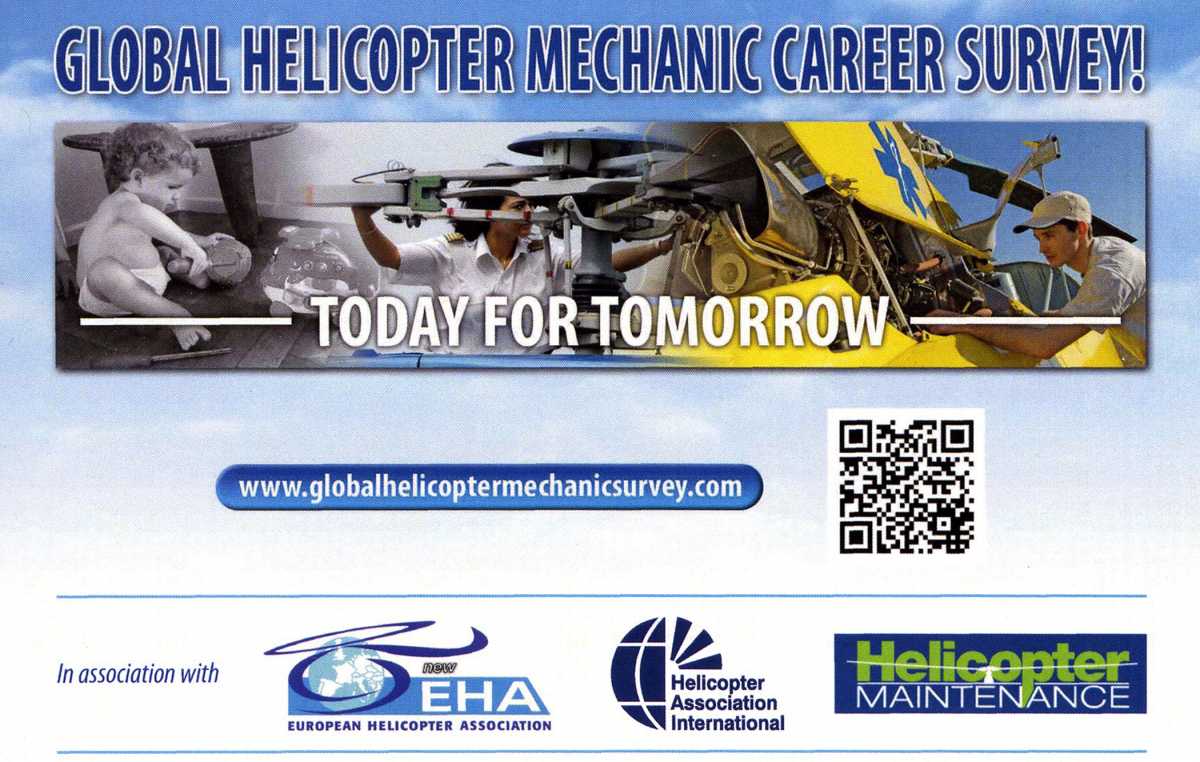
The Global Helicopter Mechanic Shortage Survey – Unabridged

“A long, long time ago in a galaxy far, far away”, oh sorry, that is not where this started, but it seems that way. At Heli-Expo 2013 in Las Vegas, NV, Safran Turbomeca hosted a symposium on the Global Helicopter Mechanic Shortage. As editor of Helicopter Maintenance magazine (HMM), I was asked to attend. It was a great symposium and by invitation, some of the biggest names in our industry were represented there. The problem discussed and responses were eye opening, and just a start to a truly serious and as the title states, “Global” issue.
I informed Turbomeca that I would write an article about the symposium, (see the December 2013 issue of HMM), and that is how it all began.
In November 2013, I received a phone call from John-Louis Mostajo, Corporate Training Director for Turbomeca, France. As a courtesy, I sent him a copy of the article before it went to print. He very much liked it, and the next thing I knew he suggested another symposium at Heli-Expo 2014 in Anaheim, beginning February 23rd. Please remember that it was already early November and between Thanksgiving and Christmas holidays here in the U.S., we were at a serious timing disadvantage.
Over the next few weeks, Jean-Louis and I spent quite a bit of time on the phone and exchanging emails on the thought of another symposium at Heli-Expo 2014. In the end we decided that we did not have enough time to do it right, and opted for another way to go. We would jointly develop a questionnaire that would be kicked off at Heli-Expo 2014, and we would use the answers to the questionnaire as the core for a symposium to be held at Heli-Expo 2015 in Orlando.

Fig. 1
The card above made its initial debut at Heli-Expo 2014 and listed the web site where participants could take the survey. Due to the efforts of Jean-Louis and Safran Turbomeca, the survey was conducted in association with Helicopter Association International (HAI), the European Helicopter Association (EHA) and Helicopter Maintenance Magazine (HMM).
Purpose of the Survey
At the time the survey began, there was no global data available that pertained strictly to helicopter maintenance professionals. Only a recent fixed-wing survey conducted by Boeing concluded that there is a major shortage of A&P/AME professionals in this career category. Therefore the purpose of the survey was to obtain a global input from the helicopter maintenance professional’s point of view. We also wanted an input from younger individuals that possibly were considering this field as a career choice.
Methodology
To accomplish our goal, we developed an on-line questionnaire that would be available on a web site for a period of 3 months (March to June 2014).
Promotion of the questionnaire was kicked-off during the HAI Heli-Expo show in February 2014, on the official HAI and EHA websites, in the Safran Turbomeca Training Network and on its on-line customer-support website. It was also listed in various helicopter magazine publications.
The questionnaire consisted of 23 questions that asked about:
- What is the attractiveness of a career as a helicopter maintenance professional?
- How visible to young people is a of career path to become a helicopter maintenance professional?
- What career opportunities do you see in the future?
- What are the motivating factors for choosing a career as a helicopter maintenance professional?
- What does a job as a helicopter maintenance professional offer?
- Do you see a greater or lesser need for apprenticeship programs?
- Do you see a need to create an international organization dedicated to the helicopter maintenance professional? If yes, would you want to become a member?
Countries Represented
Considering the short time frame the survey was on-line, the response was very good, There were a total of 456 respondents from 64 countries. The breakdown is shown below.
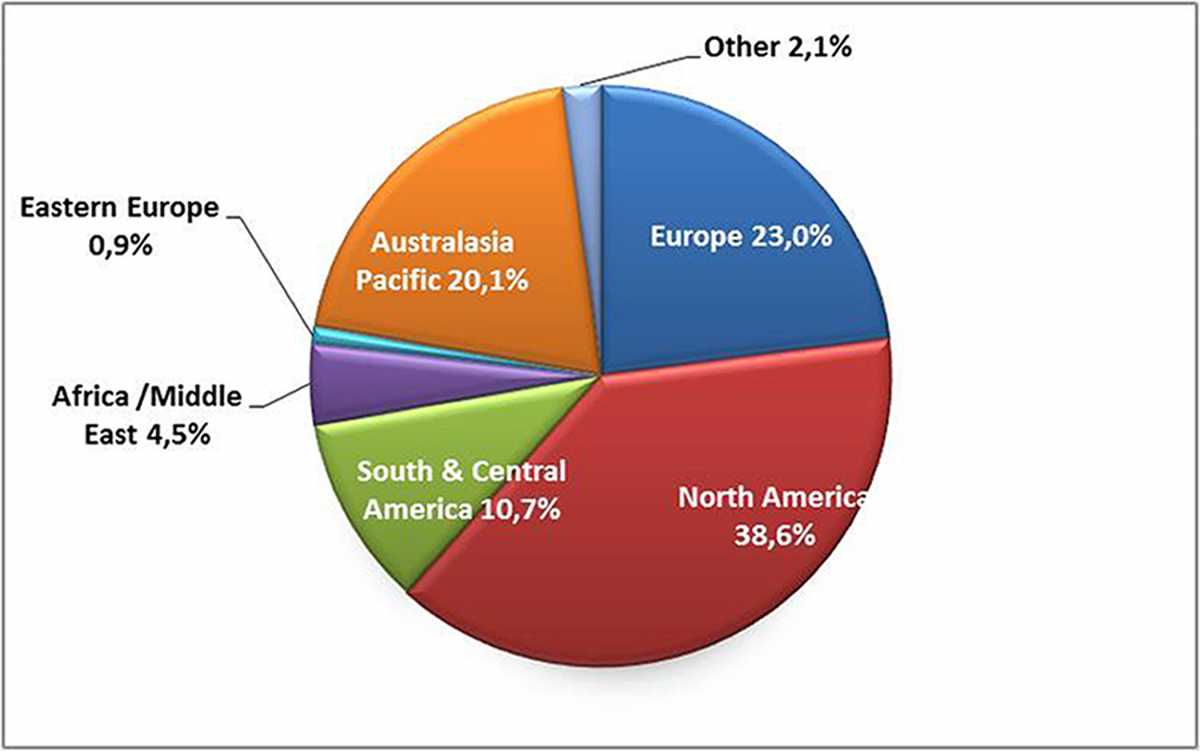
Fig. 2
This truly was a global response.
Survey Question - Gender and Age
Men represented 96% of respondents, which means that interest in the survey was largely male oriented. Female representation is a major area of development for helicopter maintenance professionals, as well as the entire aviation industry as a whole.
In terms of the age of respondents, the majority was between 30 and 50 years old and 34% were over 50. We must therefore bear in mind that only 14% of people under 29 were aware of this survey and interested in responding to it.


Fig. 3 Fig. 4
Survey Question - Respondents’ Employment Status and Position
The majority of respondents (85%) are employees, of which 61% are helicopter maintenance professionals and 20% are management personnel. The conclusions of the survey can reasonably be said to be representative of the thinking of helicopter maintenance staff. The “Student” and “Unemployed” categories are less represented. We will isolate some responses by the category of the respondent, which will give us an idea of the mindset of the young people who participated in the survey.
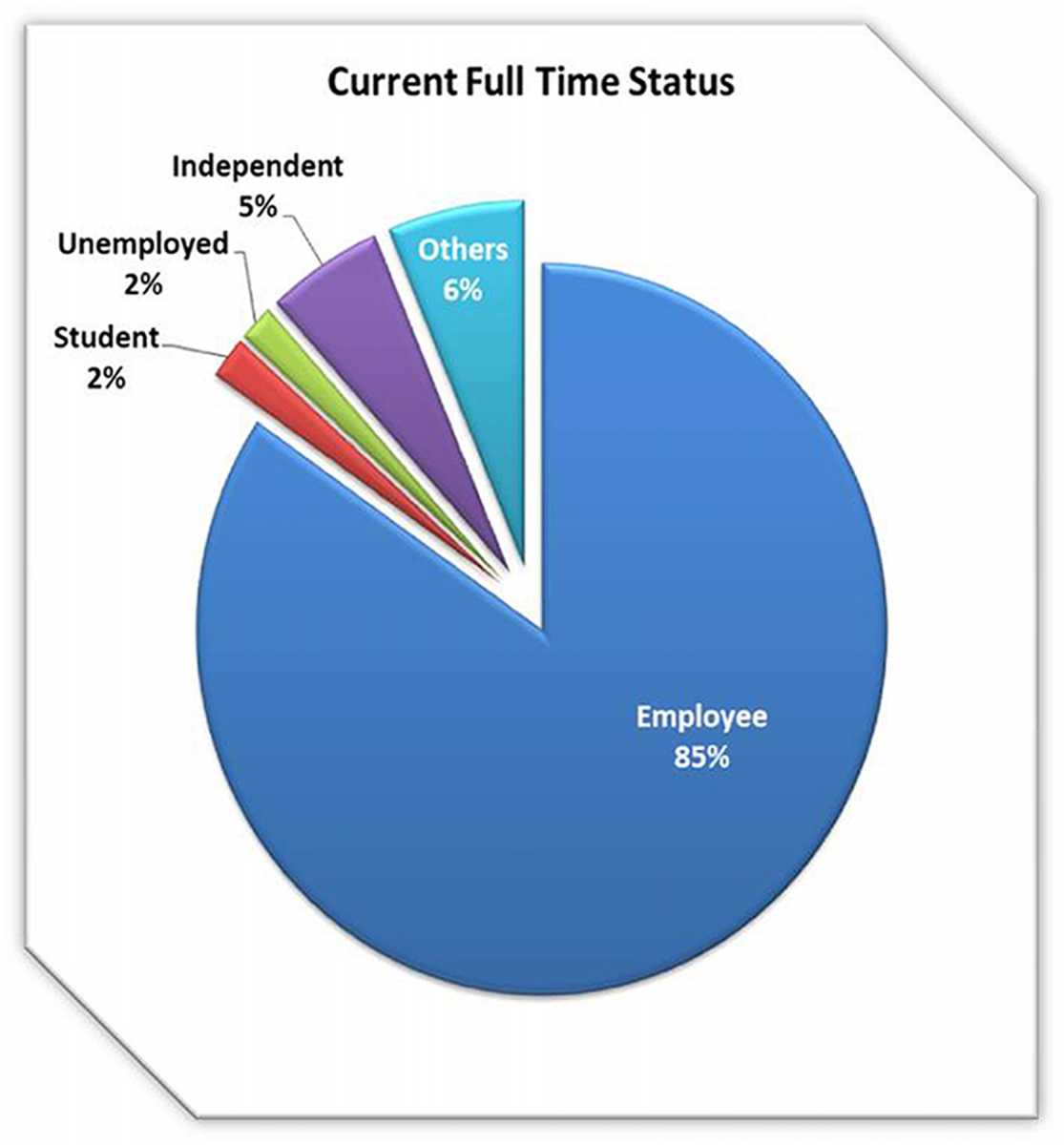
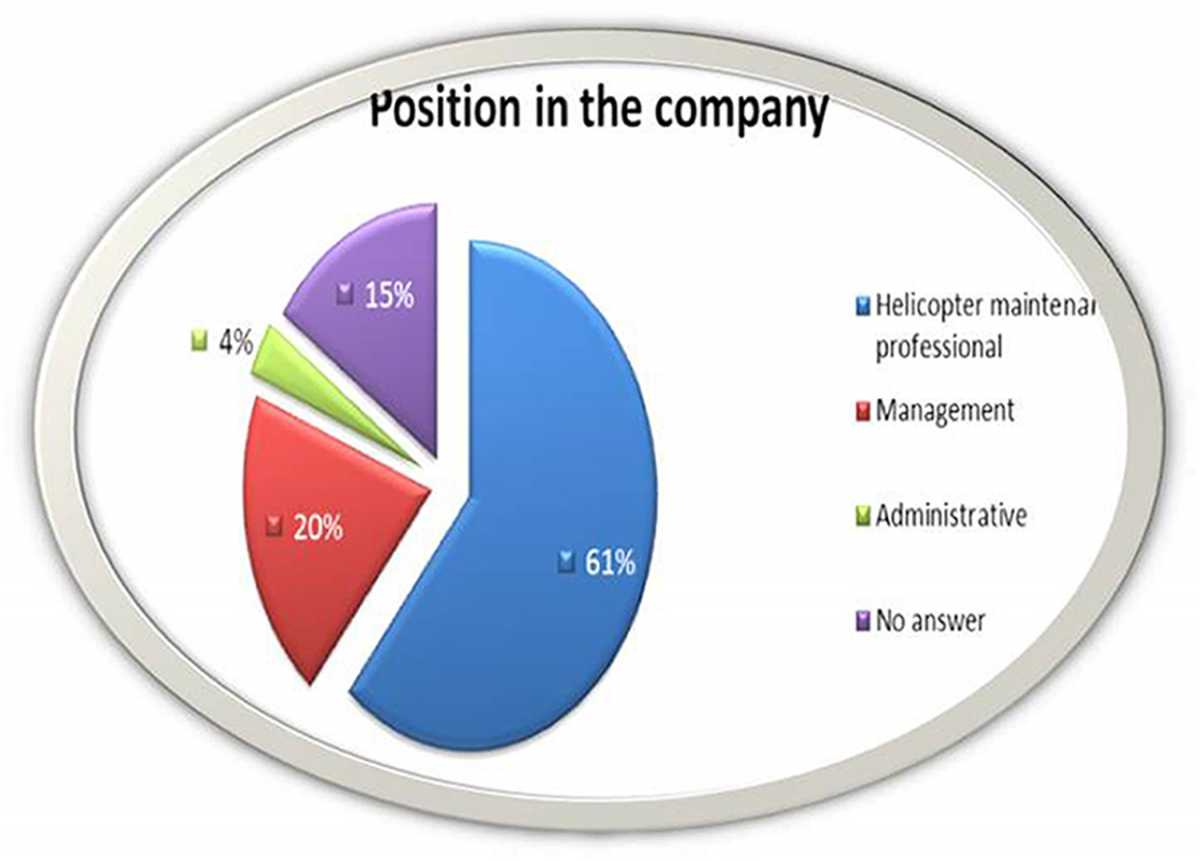
Fig. 5A & B
Survey Question - Company Size and Number of Helicopters
Respondents’ companies are representative of the helicopter world in general. The majorities (39%) have less than 49 employees.
Within the “No Response” category (46.4%), we have many respondents who are part of an OEM or MRO organization.
26.2% have less than 9 helicopters in operation; 11% are part of the “big” operators (over 50 helicopters) in operation.
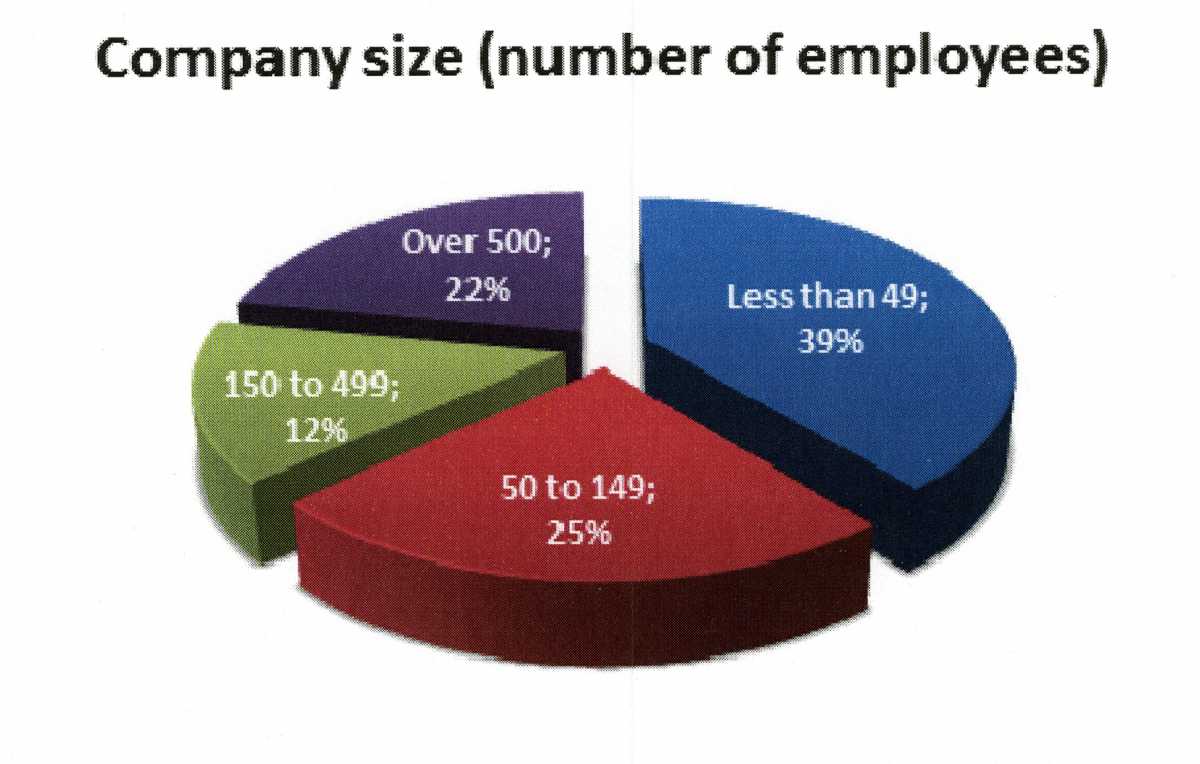
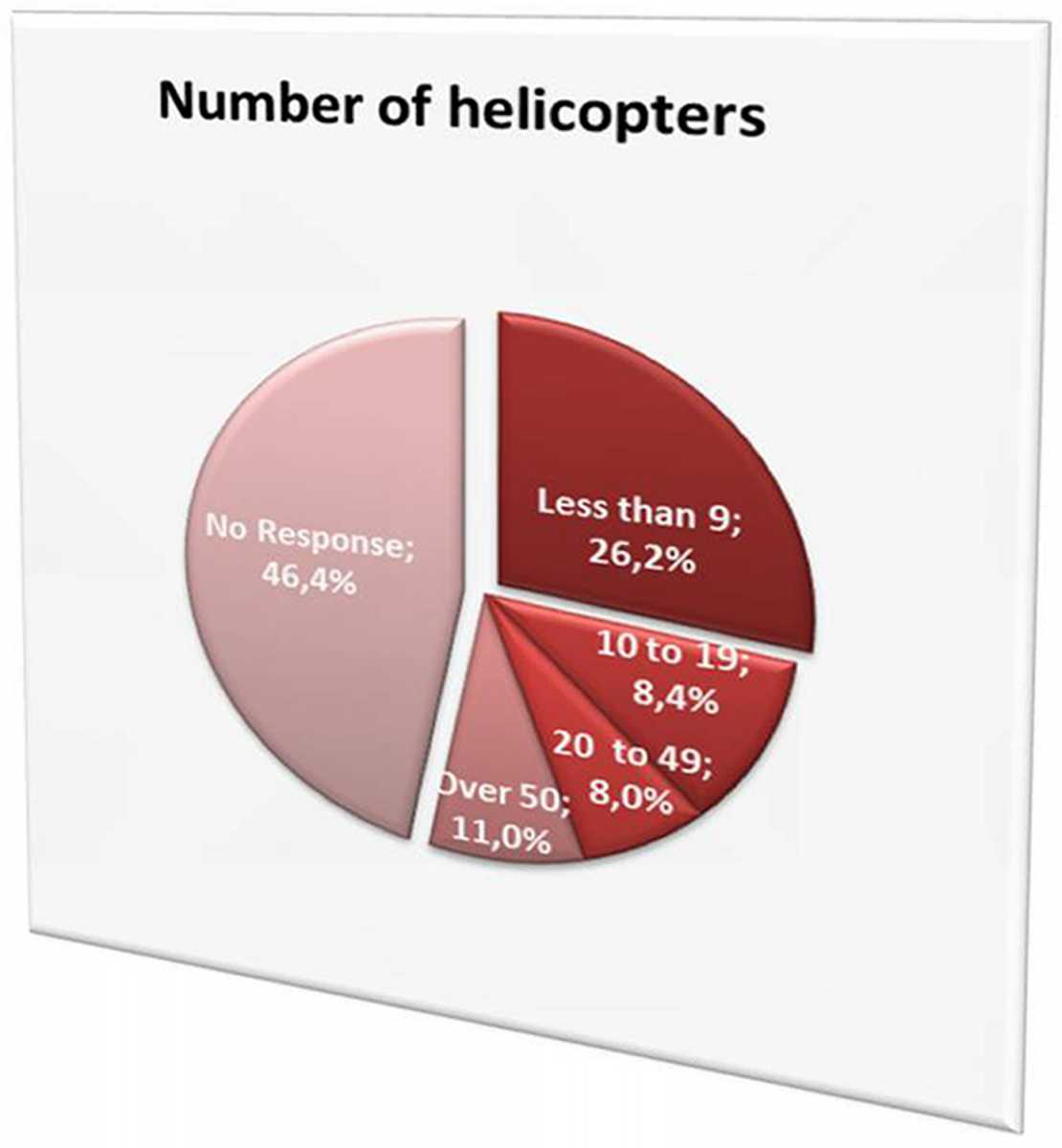
Fig. 6 Fig. 7
Survey Question - Projected Retirement of Helicopter Maintenance Professionals in Years and the Perceived Increase in Career Opportunities
35% of A&P/AME professionals are expected to retire within the next 10 years, and 29% within the 10 years after that.
This is consistent with the International Civil Aviation Organization’s (ICAO’s) global and regional forecasts, as well as with Boeing’s survey (2012). For both, the conclusion is that the need for qualified maintenance personnel will increase in proportion to the size of the global helicopter fleet, and the turnover of helicopter maintenance professionals (including retirements).
Statistics confirm previous perspectives; 40% of the surveyed population thinks that job opportunities will be created within the next 3 years and 45% within the next 10 years!
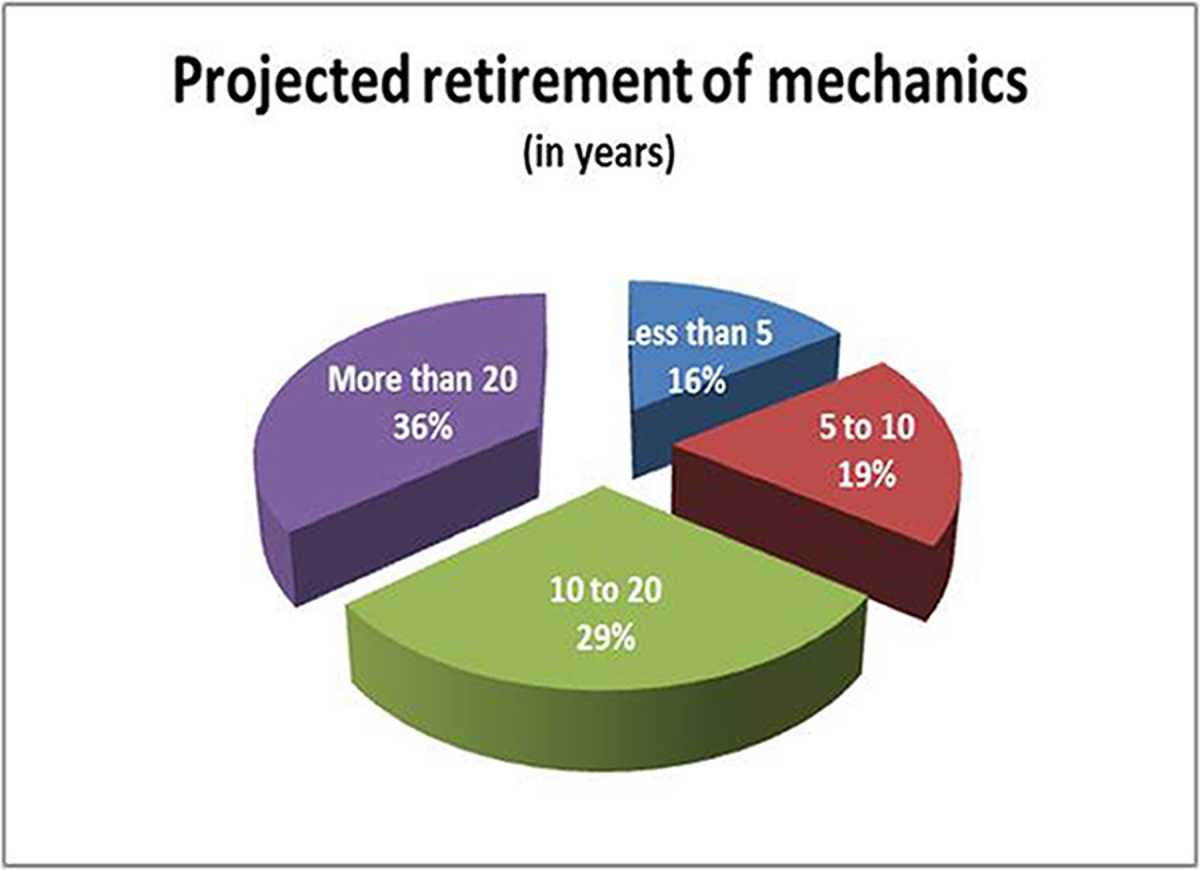
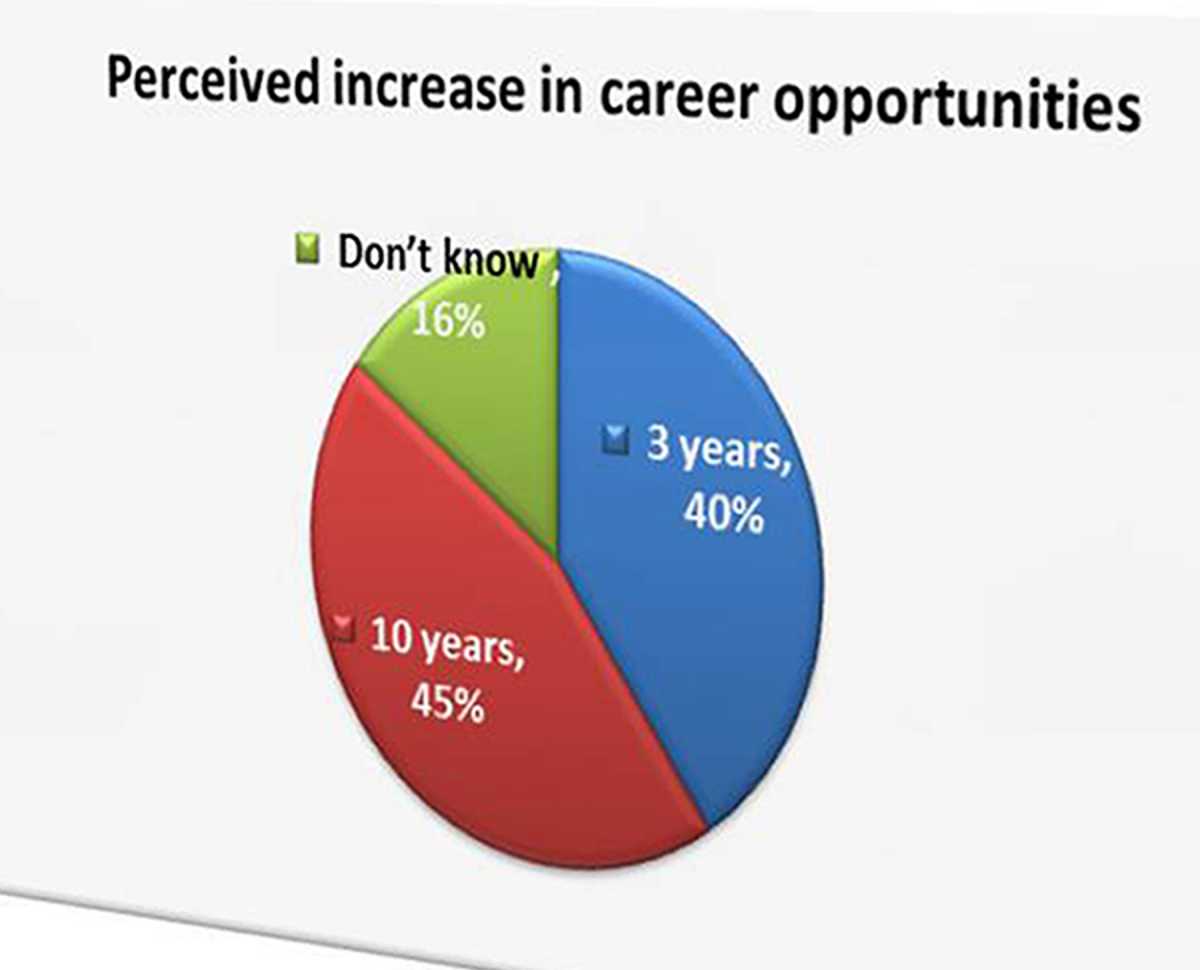
Fig. 8 Fig. 9
The following were additional comments to “Do you think career opportunities for helicopter maintenance professionals are going to increase in the coming years?”
• It depends on the economic climate.
• Career opportunities for helicopter maintenance professionals never increase in reality.
• As the helicopter market is decreasing, the salaries for technicians are not so high, the way to obtain a license is too hard, a lot of things that have to be learned are not directly linked to the everyday job, too many rules, too much paperwork (more than a real mechanic).
• No progression seems possible.
• I think the opposite, career opportunities are going to decrease!!!!
• The helicopter business is pretty slow around here and there are no big projects on the mid- or long-term forecast.
• Hasn't changed yet. Because we have been labeled "introverts", how would we promote ourselves and why would we?
• I have no idea regarding the future of the industry.
• Who will be concerned by an increase in opportunities; India, Pakistan?
• Technology is creating different types of machines and drones. If computerized drones start flying on a large scale, there will be less maintenance because everything is more precise.
• New technologies with the same number of helicopters means fewer hours of maintenance, so you need fewer professionals for maintenance.
• Helicopter MRO activity is tied to the economy.
• As OEMs continue down the path of being concerned more about limiting their liability, it is daily becoming more frustrating to maintain aircraft. In the future, the OEM will dictate what components need to be replaced. This will drive DOC's up and, for most professional helicopter mechanics, will drive them out of this career.
• This is now commonplace in the automotive industry: parts changers. The more parts they change the more money the shop can charge the customer and eventually the problem gets fixed. Most helicopter mechanics like to do what is necessary to see the aircraft fly safely for another day and another mission.
• It is unlikely due to the fact that the business model of some manufacturers is to essentially build disposable aircraft. When the aircraft gets to a certain age, they want you to replace it with a new one.
• Long work hours - little pay - little to no recognition.
• There are very few young mechanics because of poor wages, politics, too much travel, etc.
• I don't know the current opportunities.
• The global economic situation is difficult.
• UK CAA oil and gas regulations may drive customers away.
• A&P work in the US is low paid, high responsibility and very physical, never mind the random drug testing.
• Drone development.
• I see younger people not taking an active interest in mechanics jobs, and operators not developing maintenance as a profession.
• I do not think it is going to increase. There will only be a loss of experience and not enough trained personnel to replace the drain. The industry eats its young.
• Salaries are less than fixed wing. I think that small operators will disappear in favor of the larger companies.
• Will not increase for "professional" engineers. Will increase for the sub-standard engineers being turned out now.
• Because helicopter mechanic salaries are in general very low compared to other industries. Feeding a family is very difficult, depending on country. As you get older, the job as a helicopter mechanic gets unattractive.
• Everything depends on management.
• There is not much talk or news about the future of helicopters.
• Young generations prefer white-collar jobs and may not be interested in real-life field work, as demanded by helicopter maintenance jobs.
• Because there is less opportunity to enhance my ability without having a license, as I work as engineering staff.
• Reduction in oil exploration & production. Things will stay static.
• The helicopter market is volatile.
• I think EMS is going be one or two big players which run with less maintenance
• No, there is no reason to become involved in aviation for those who do not want any responsibility. The FAA has changed from a "helping hand" to a governing body with strict guidelines and fines. The pay is ridiculous compared to that of an assembly line worker on automobiles. Also, an average auto mechanic can work 40hrs a week at 20+ dollars an hour, with no call back in the middle of the evening. Also, the average auto mechanic has no responsibility, as the dealership/manufacturer will cover the discrepancy. Whereas, aviation mechanics are on call 24 hrs a day for the same pay, huge responsibilities and can be visited by the FAA at any time. There is nothing today that I see in the aviation/helicopter community to encourage any of today’s youth to become involved, either in terms of salary or of interest.
• With new emerging technology such as drones and other similar aircraft, the pilot and mechanic fields will become reduced. Also, with budgetary cutbacks, buy-outs of smaller companies by OEMs, reductions in Service Centers, OEMs cutting discount percentages, the incentive for helicopter maintenance service providers is shrinking at best and, at worst, is no longer worth the risk.
• I doubt it, if the wages for other 2-year college degrees are surpassing A&P's wages. Why would anyone want to take up this field? The stress along with the responsibility of putting people’s lives in your hands isn't worth the low pay.
• There is not much career advancement.
• It depends on the future development of helicopter operations. Normally, there should be an increase in opportunities.
• I think the 'career' will disappear and be replaced by a JOB that is dictated to like a factory worker with very distinct boundaries.
• I think that the industry as a whole has peaked and has now leveled out. There is a possibility of more opportunities with the introduction of drones.
As you can see, there were many comments and not all of them were flattering for our industry. Perception right or wrong is a powerful tool that can grow a life all its own.
As can be noted by the chart below, the vast majority of students that responded to the survey were in school for other careers
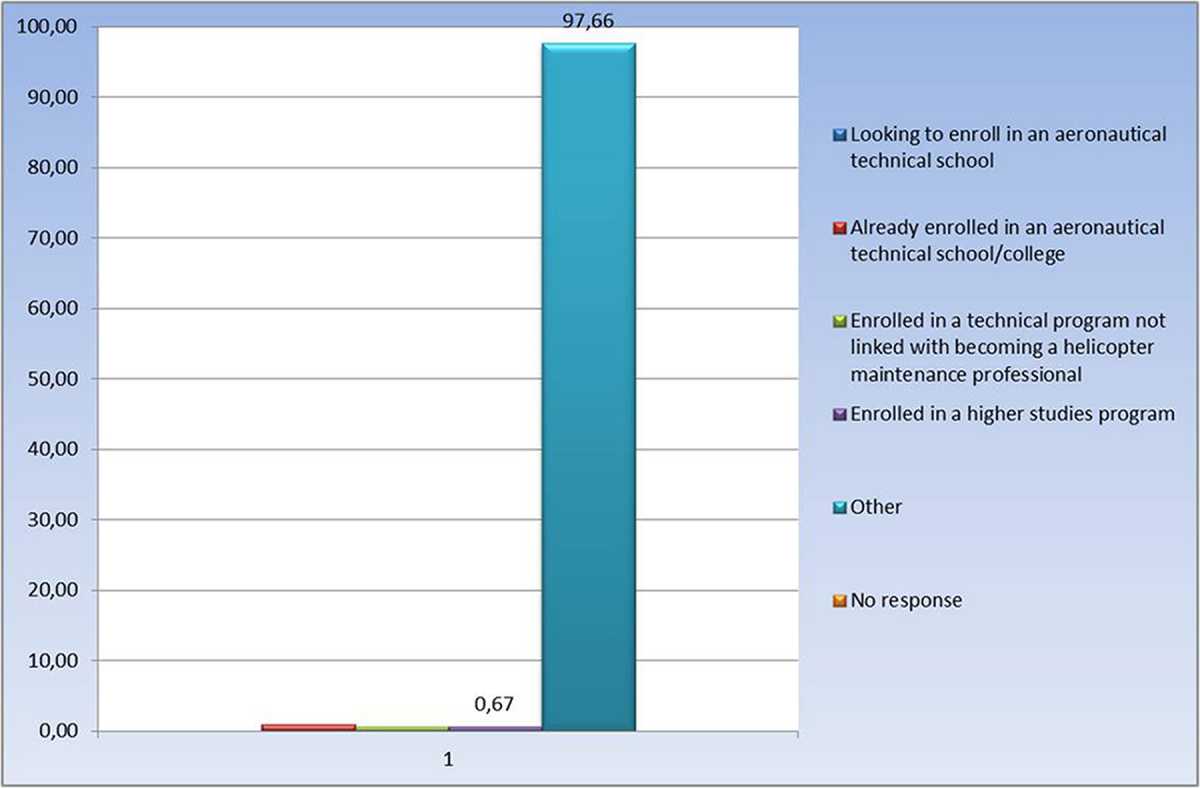
Fig. 10
Survey Question - What is the Attractiveness of a Career as a Helicopter Maintenance Professional?
Students and employees views are quite different concerning the risk of unemployment, and very similar concerning mechanical work. Students do not consider a job as a mechanic to have “no risk of unemployment”.
Working in aviation is still the most attractive factor for students (23%). The second most attractive factor for students is “mechanical work” (17%), followed by “being part of a team” and “responsibility”.
The reinforcement of communication should be based mainly around these 4 factors

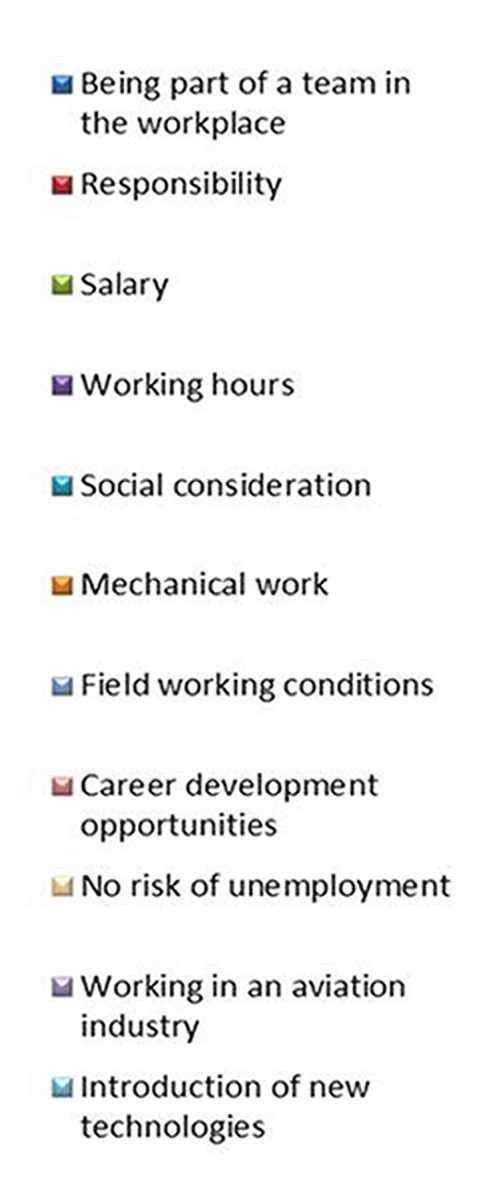
_0.jpg)
Fig. 11 Fig. 12 Fig. 13
For independent or contract workers, the main factors of importance are “Mechanical Work” (21%), and “Working in an Aviation Industry” (20%), which is one of the main reasons why they are independent!
The third most important factor is “Responsibility”.
Other factors have a medium representation like “Being Part of a Team”, which comes before “Salary” and “Introduction of New Technologies”. According to the survey, these are not the main factors in the attractiveness of the job for independent workers.
Independent workers do not consider “No Risk of Unemployment” to be an important factor in the attractiveness of the job (3% compared to 16% for employees).
.jpg)

Fig. 14 Fig. 15
Concerning the risk of unemployment, a large population (Others = outside of the business) is not aware of job opportunities (0%).
For this population, the main factors of attractiveness are “responsibility”, “mechanical work”, “career development opportunities” and “working in the aviation industry.”
However, these factors could also be considered to limit the attractiveness of the career:
- “Responsibility” means you can be on your own (being part of a team was not seen as being a very important factor)
- “Mechanical work” can mean less innovation (10%), a lower salary (2%) and lower social consideration (2%).
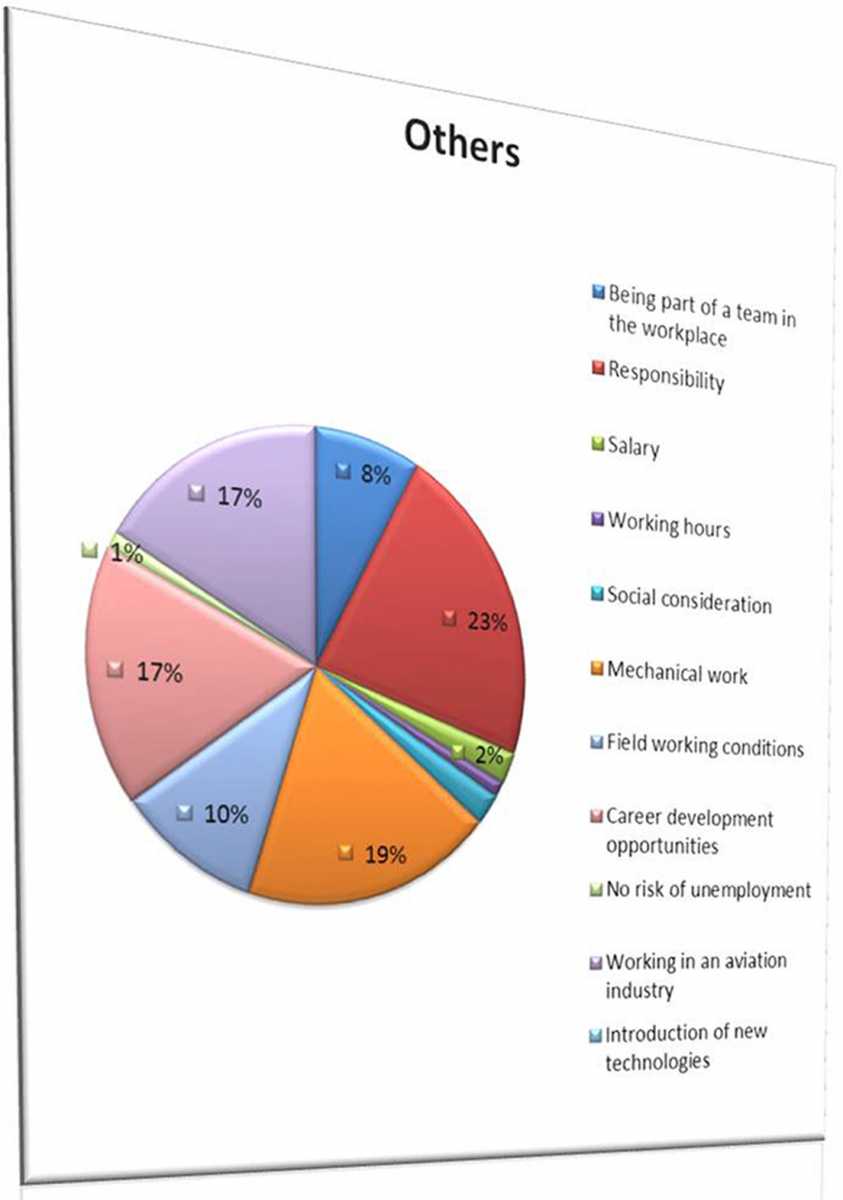
Fig. 16
Survey Question – What Do You Think is the Future for Helicopter Maintenance Professionals?
This result is one of the most significant of the survey.
The employee population is divided into 2 mindsets: one is positive regarding the future of the job (60%), and the other has big doubts and thinks that the job is going to disappear (40%). We should consider that the doubts of active mechanics could be linked to factors such as confidence, consideration and career visibility. There is no doubt the industry should increase the standing of this career!
What’s more, action needs to be taken quickly. 12% of the student population has doubts regarding the future of the job. Making this job attractive means firstly increasing the satisfaction of the helicopter maintenance professionals currently performing the job!
As for the unemployed who are looking for a job, their view of the career is completely positive!
.jpg)
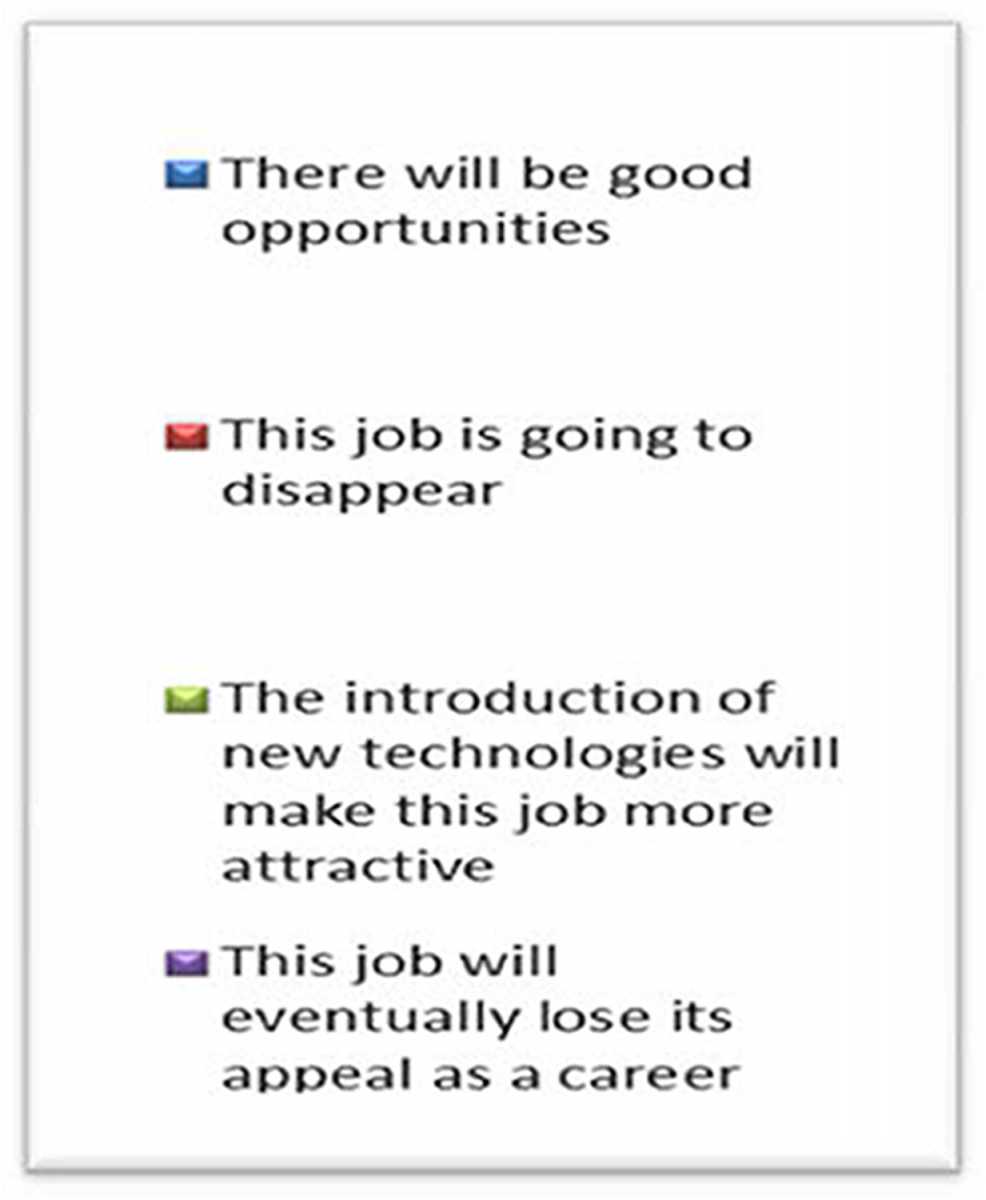
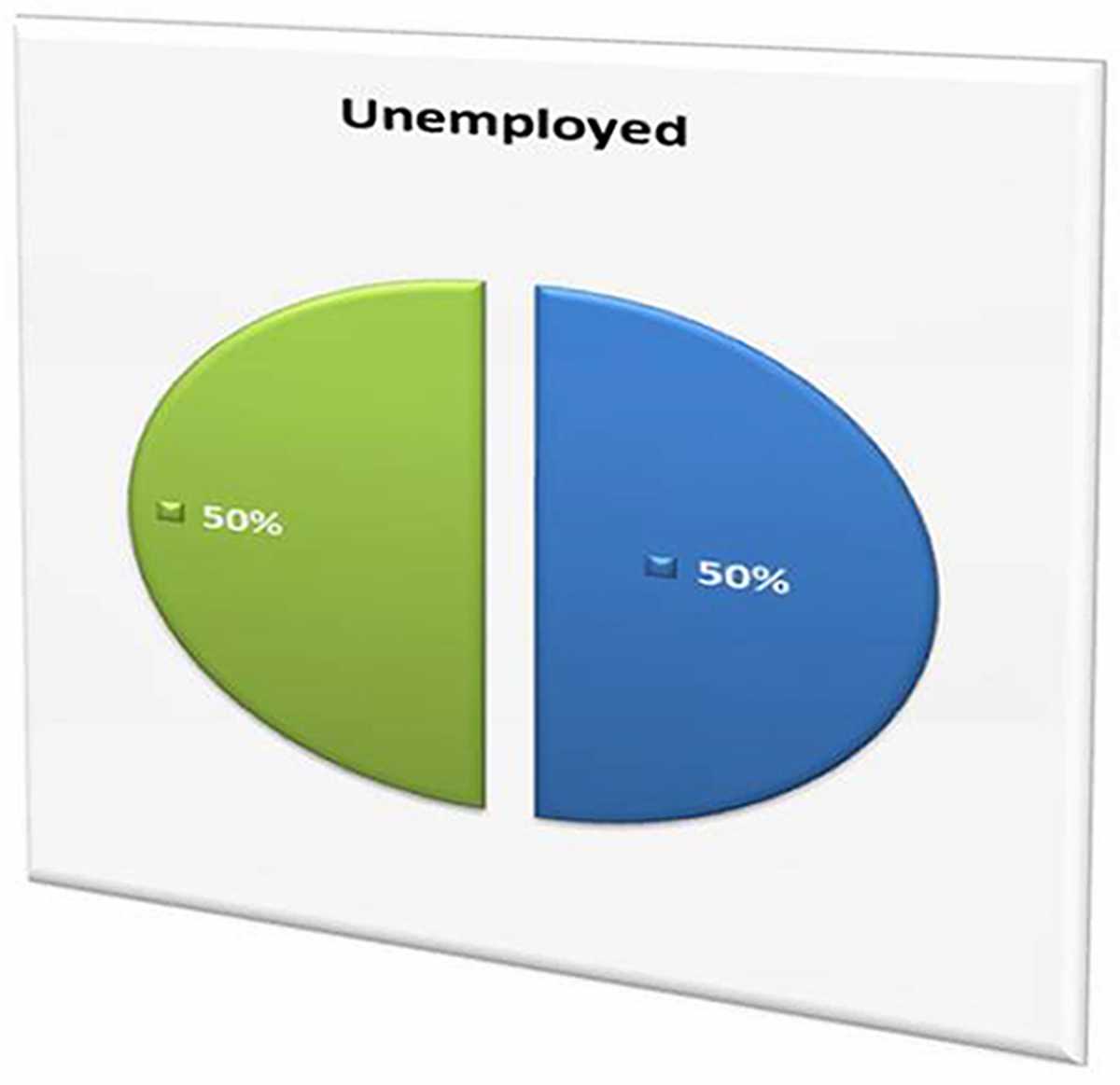
Fig. 17 Fig. 18 Fig. 19
For independent respondents the feeling is 80% positive, while negative feeling represents only 20%.
This appears to state that the current independent respondents are less dubious than the current employees about the future of the career, and have a vision that is more dynamic and open regarding introduction of new technologies. Independent respondents compared to employee respondents seem to be more open toward changes in the industry without new technologies being an attractive factor in career choice.
_0.jpg)

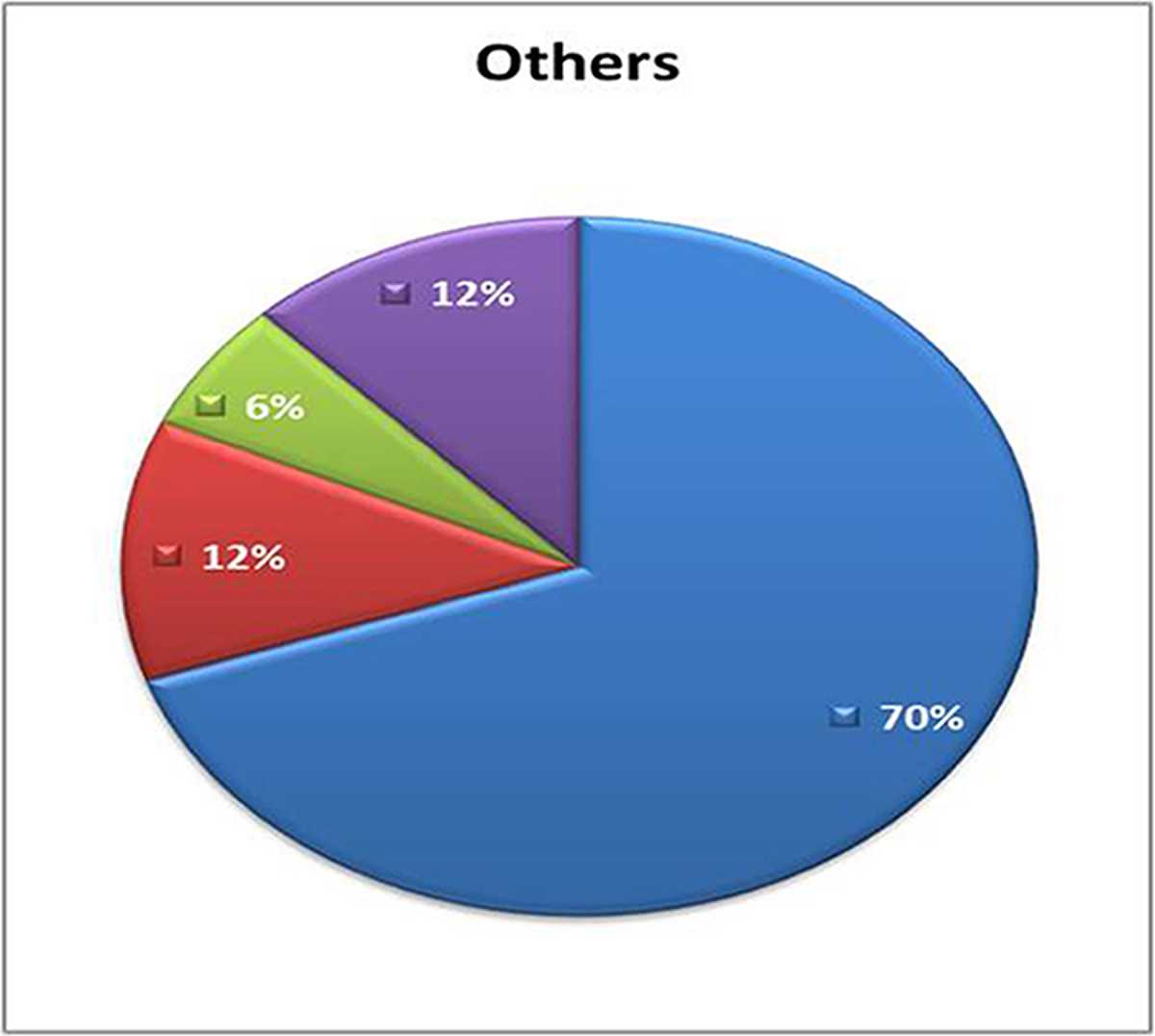
Fig. 20 Fig. 21 Fig. 22
Survey Question – What Do You Consider to be Motivations for Choosing a Career as a Helicopter Maintenance Professional?
For both employees and the unemployed, the most important factor for choosing a career as a helicopter maintenance professional is because “they both talk positively about the job.” “Career Development” is the second most important factor for them, but is the most important factor for students.
For unemployed respondents, the main response was “Don’t Know”, which means that the information does not reach them. 25% to 27% of the overall population responded “Don’t Know”.
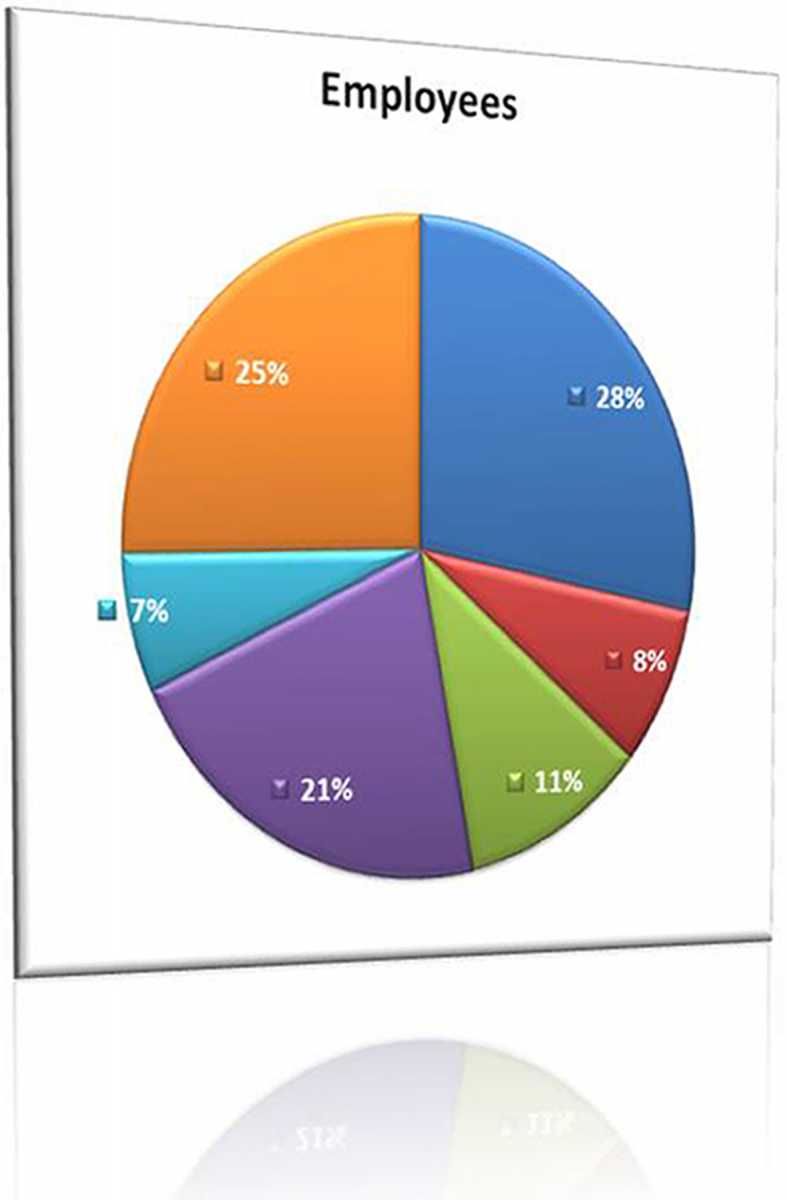
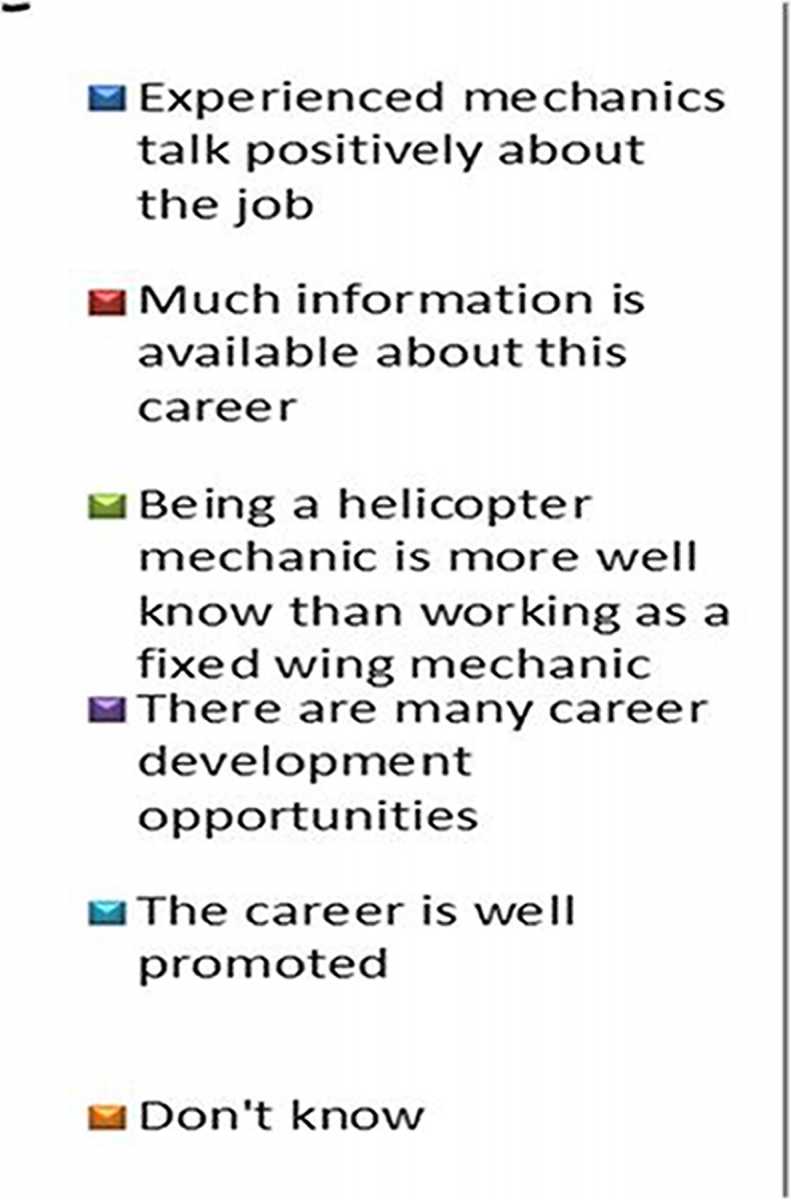
Fig. 23 Fig. 24

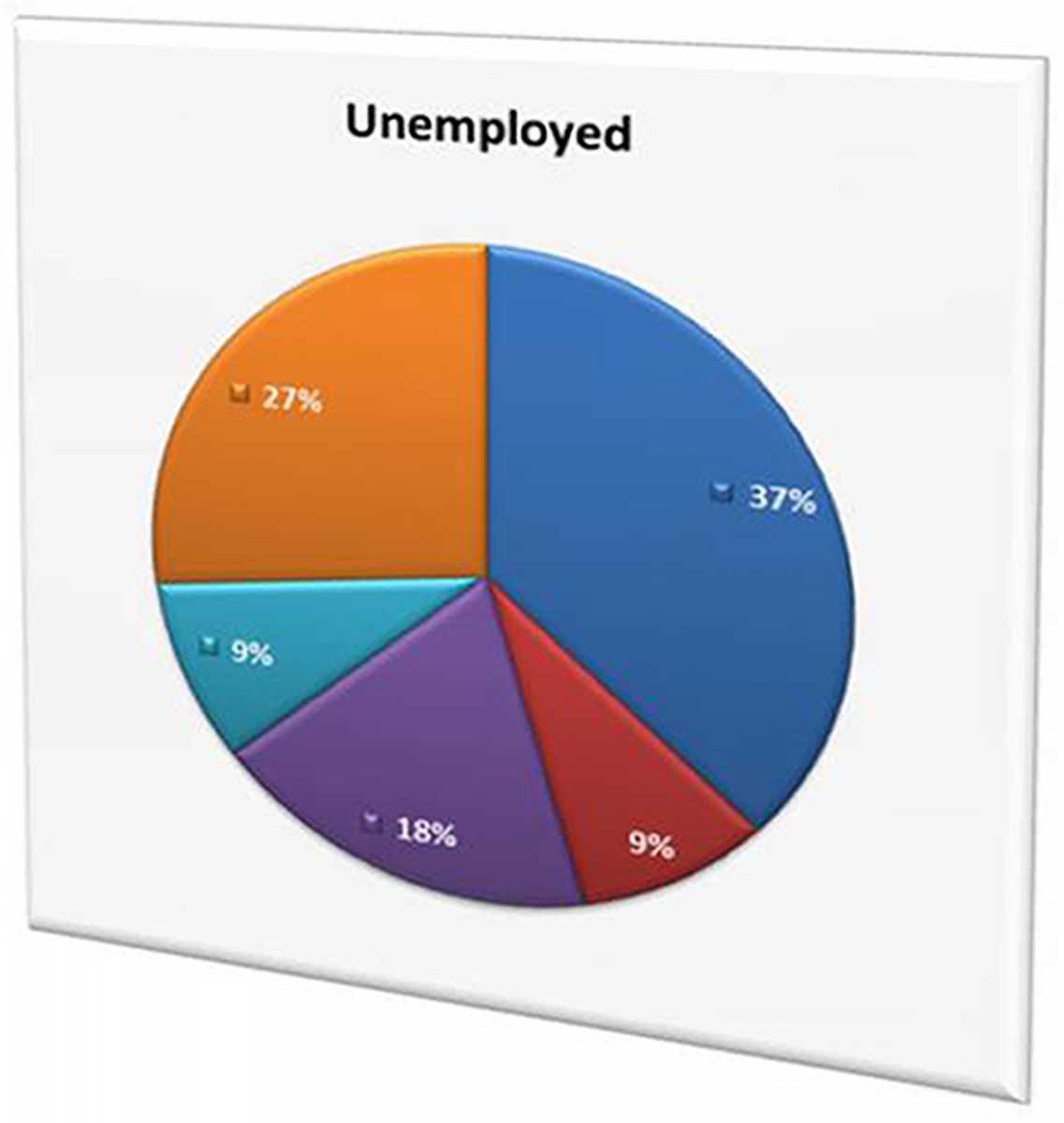
Fig. 25 Fig. 26
Survey Question – In Calendar 2013 What Promotion of Becoming a Helicopter Maintenance Professional Did You See, if Any?
Here are some of the more thought provoking comments:
It is not surprising – “there is no such thing as a free lunch.” “You have to speculate to accumulate.” “You don’t get something for nothing.”
This means that this career path only has limited exposure and is not visible for the general public. You have to know someone in the business to stand any chance of finding out about it.
The aeronautical sector and the helicopter sector in particular, want to make the use of this type of transport more accessible. In general, we mainly hear about helicopters in relation to accidents or wars… and we hear nothing about the work of helicopter maintenance professionals.
The USA is currently the country where there seems to be the most promotion of aeronautical jobs… Europe, Asia, Africa and the Middle East have very poor promotional attitudes.
Some additional more positive comments:
• An airport organized an event for women in aviation (Canada).
• Most aviation-minded young people are often intrigued by helicopters (South Africa).
• Work experience programs for schools (United Kingdom).
• Higher salary and interest to work on helicopters (Nepal).
• Young people thinking they are getting an easy job with good money, no responsibilities and good job prospects (being lied to!!!) (Australia).
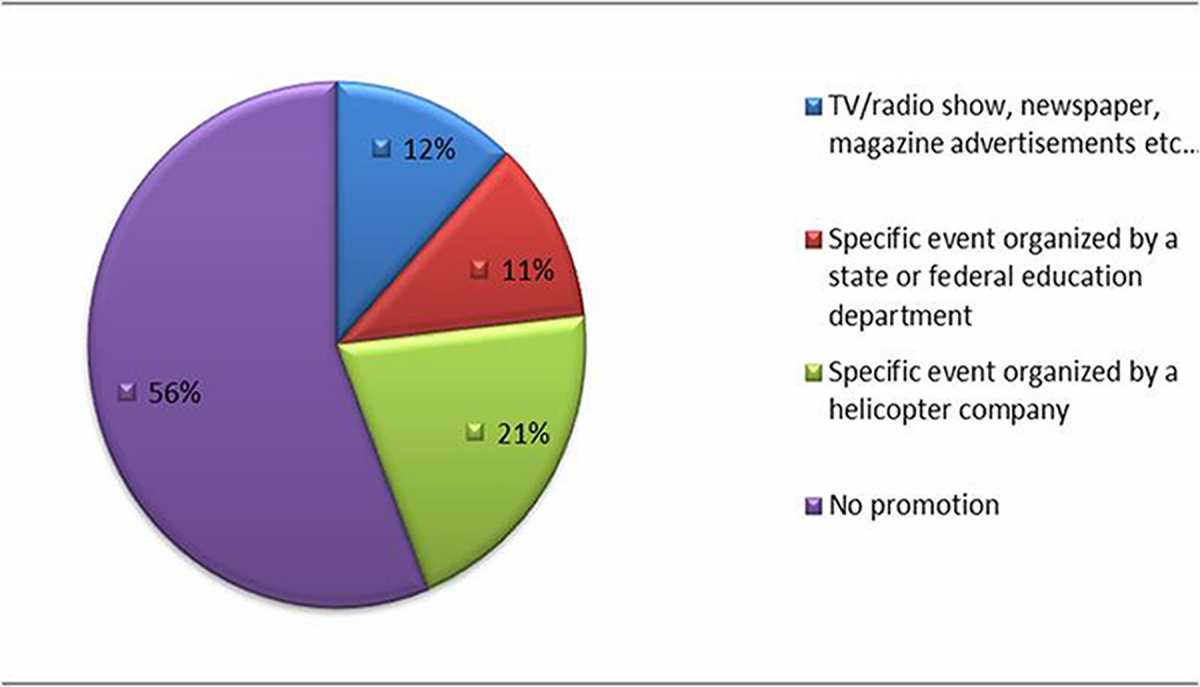
Fig. 27
Survey Question – What Does a Job as a Helicopter Maintenance Professional Offer?
For an employee, being a helicopter maintenance professional represents first “good potential for salary increases”, followed by “faster career development.”
These 2 factors are equally important for students, while 37% of the respondents didn’t really know.
For unemployed respondents, the major factor is “good potential for salary increases.”
From the responses generated, we can conclude that a job as a helicopter maintenance professional is associated with good wages and good opportunities for faster career development.
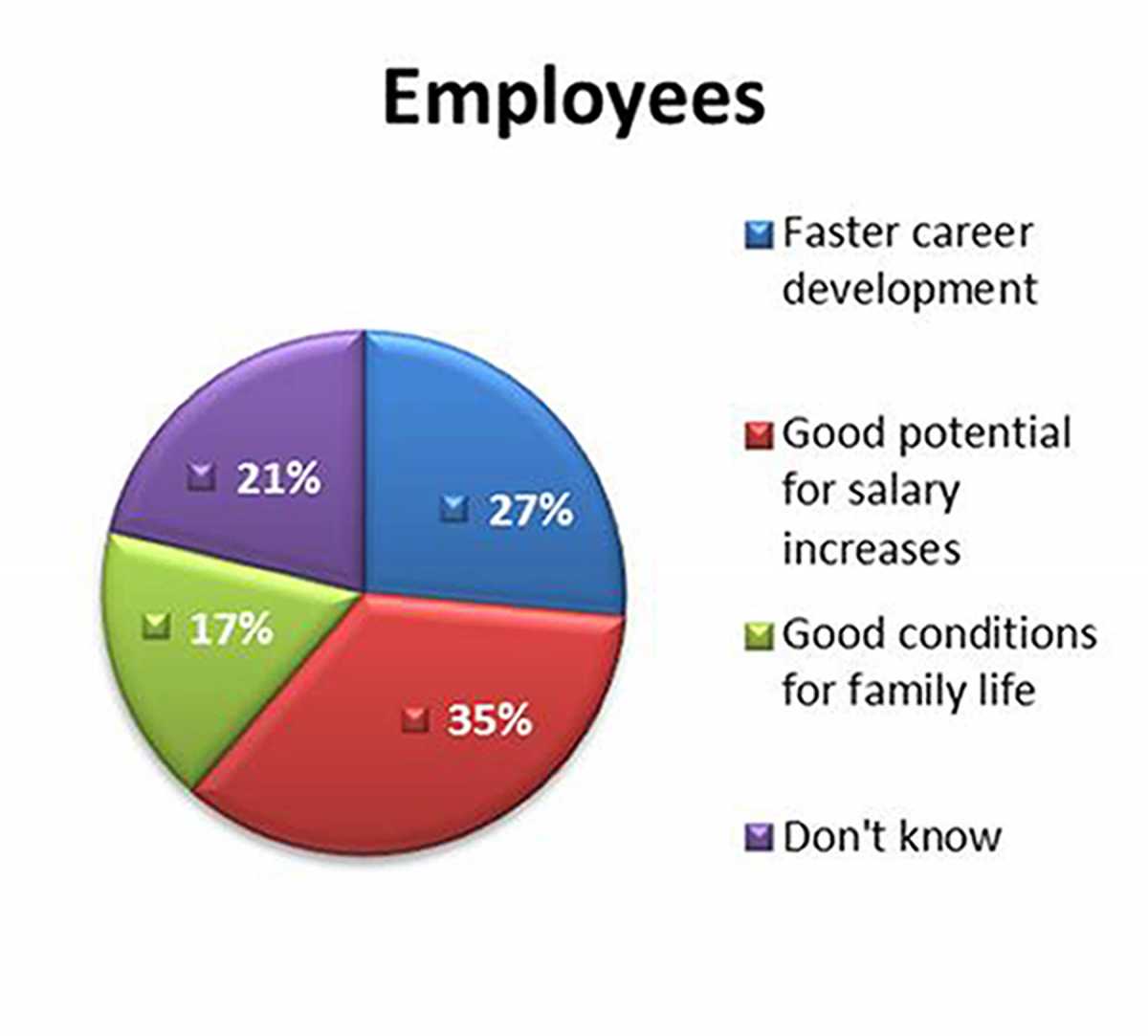

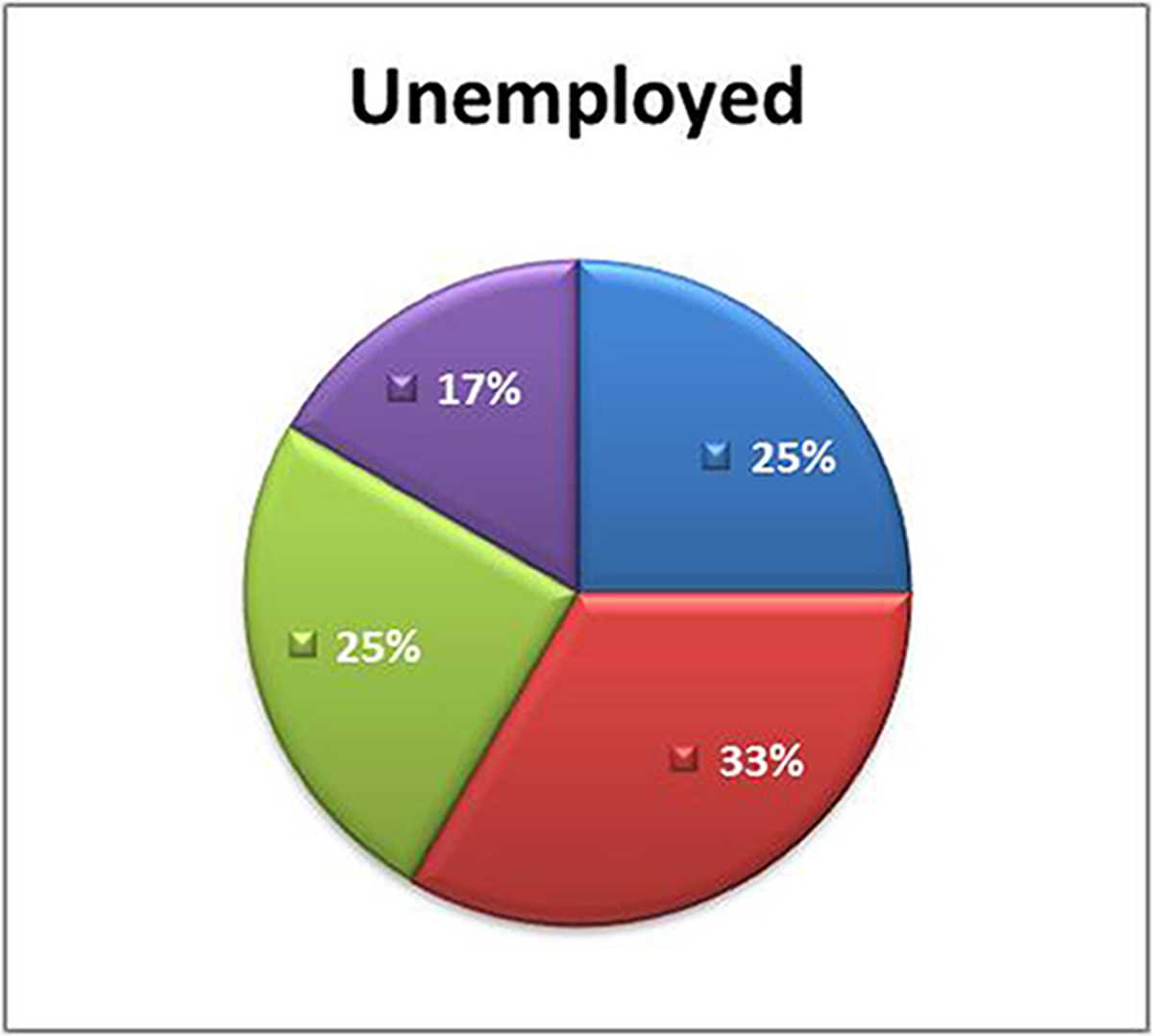
Fig. 28 Fig. 29 Fig. 30
The perception of career opportunities is consistent with other surveys in the aeronautical sector. Boeing’s 2012 Outlook Report estimated that over the next 20 years, 600,000 new aircraft maintenance professionals will be required around the world.
40% of the survey respondents feel that these needs will appear within the next 3 years, while 45% think that they will appear within the next 10 years (taking into account the global economy). If we compare these results with the question asked employees about the date of their projected retirement or change of job, it would seem that the increase in activity will be the main factor for creating career opportunities. In the short term, only 16% of employees think they will retire or change jobs within 5 years.
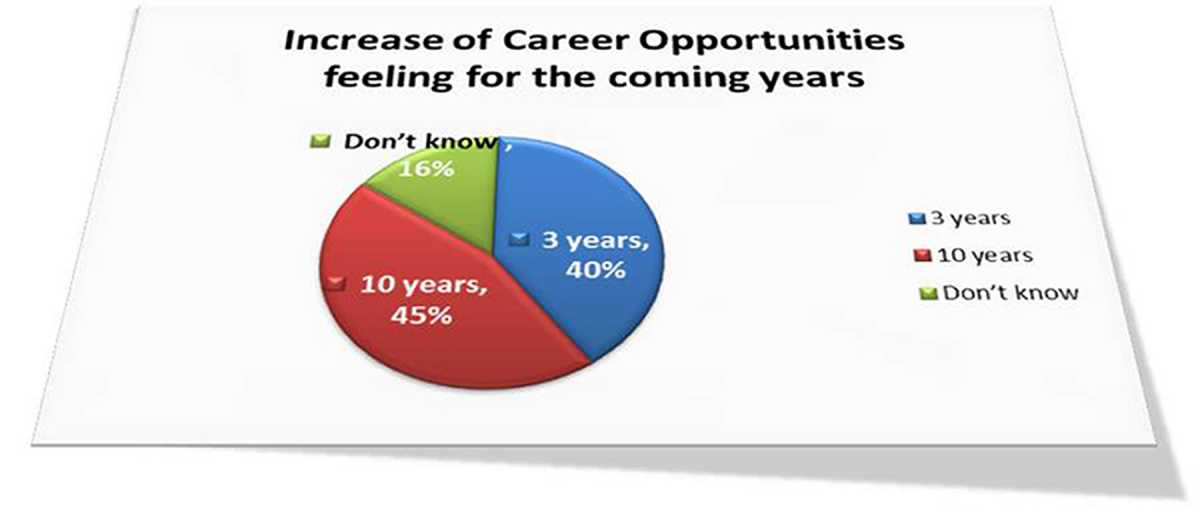
Fig. 31
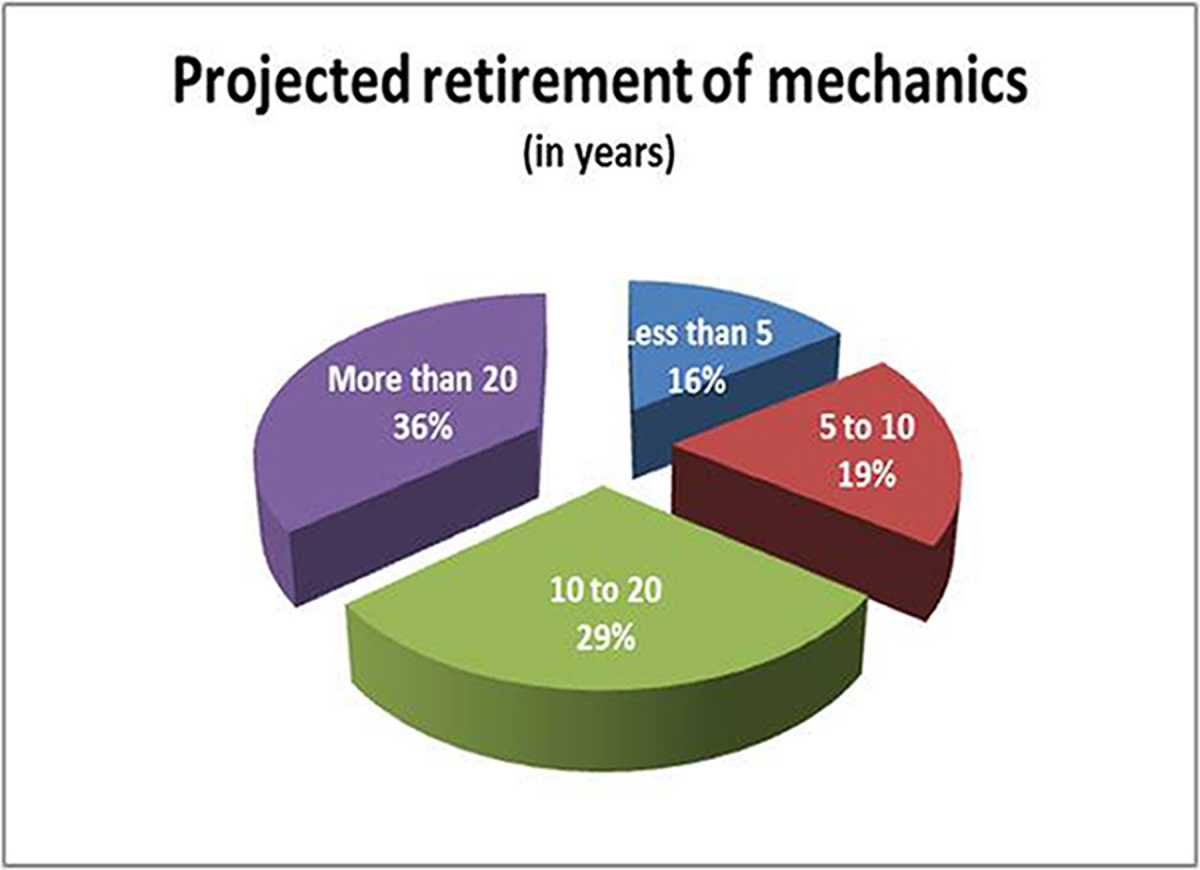
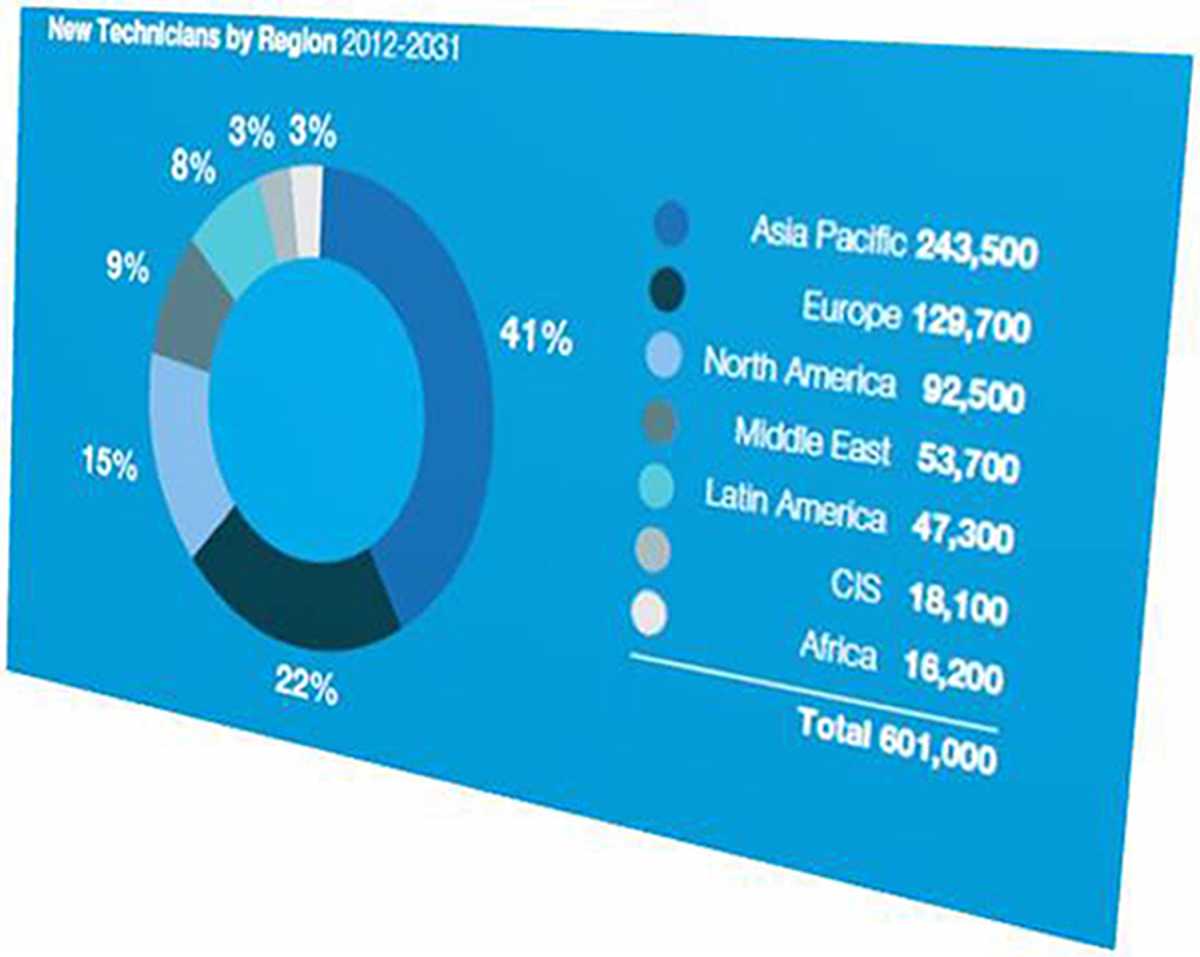
Fig 32 Fig. 33 Boeing Source: 2012 Pilot & Technician Outlook Report
Survey Question – What are the Reasons for Helicopter Maintenance Professionals to Continue Their Studies?
The main reason for employees, who are already active helicopter maintenance professionals to continue their studies, is to achieve faster career advancement.
This respondent’s replies allow us to ask questions such as:
“Does the way in which operators are organized allow internal career advancement? Is it promoted? Is it adapted? Does the adult-education system organize a suitable program?”
A major issue reported by employees is linked with the rhythm or steps of career advancement. As the majority of operators have less than 49 employees, it is difficult to organize and satisfy all the maintenance personnel. This is why we make the following suggestion:
Companies could share their needs to build specific training solutions and opportunities.
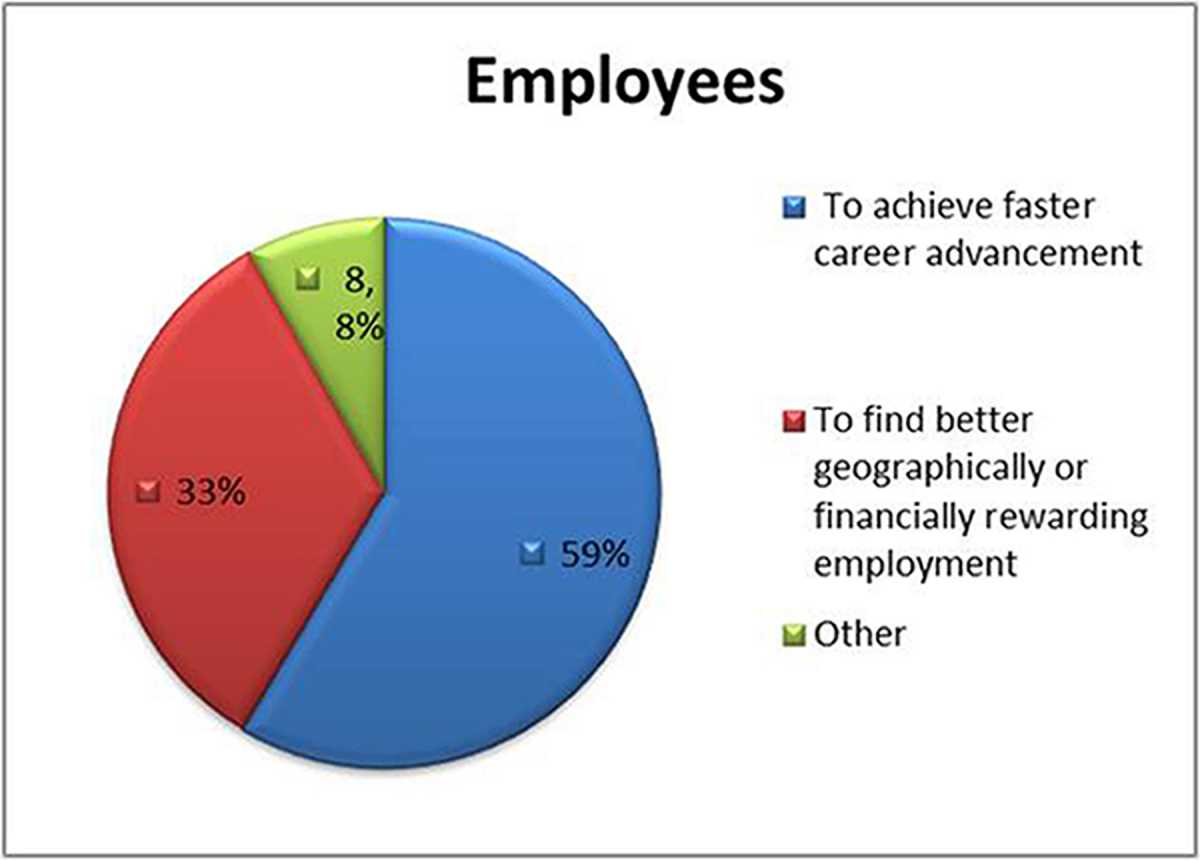
Fig. 34
Students are more focused on geographical and financial issues. They think that by having a higher level of studies, they will have more opportunities to choose where they will work and better financial conditions.

Fig. 35
Additional comments to the question: What are the Reasons for Helicopter Maintenance Professionals to Continue Their Studies?
• Most of us like the work we do. We engage change/learning as required to complete our jobs. Do the smaller helicopter companies/operators provide training opportunities for their maintenance personnel? Most can't or won’t, which leaves it up to us. Who can afford to work, meet family financial obligations and then try to afford factory training out of their own pocket? Companies want experience, but won’t pay for it. Mechanics want higher pay, but won’t work for it. New mechanics want a job, but don't have experience, and employers won’t pay for training. It’s a constant vicious circle of give and take.
• Why do you always want people to continue their studies? To become a manager? Most mechanics like their jobs and they just want to keep competency to continue working on helicopters.
• Most helicopter mechanics love a challenge
• Maintain professional value.
• Personal education! Does anyone actually think having a liberal arts degree is going to help being a mechanic?
• Forced to because of regulations. Company and FAA don’t want TRUE A&P mechanics - they want parts changers.
• To ensure safety during operations.
• In many cases, it is required to obtain a position in a company as part of the licensing requirements of Transport Canada.
• I don't see Maintenance Professionals as making a self-supported effort to continue their studies. The helicopter industry is not supporting of general aviation training after the A&P is acquired. Employers will support factory training.
• To increase their skills and improve their salary.
• To learn a new trade
• For other jobs
• Most maintenance professionals I know do this job because they love it. NOT because of pay, career advancement or any other rewards as there are none. We watch the minimum wage climbing thru $15 an hour, yet some in this industry with schooling and experience are still being paid in low to mid $20 an hr. With the responsibilities of aviation mechanics being some of the highest in the world, why would anyone want to do this job other than for the love of it?
• More companies are making it mandatory to attend schooling.
Survey Question - Is there a greater or a lesser need for apprenticeship programs for recent A&P/AME school graduates?
The results for students and the unemployed are consistent with the results concerning how they feel about the future for helicopter maintenance professionals.
The results for employees are not consistent with how they feel about the future of helicopter maintenance professionals. 80% think there will be a greater need for apprenticeship programs for A&P/AMEs, in comparison with 40% who think that “the job is going to disappear!” What is the real message? It could be: “We are confident that there is a greater need for apprenticeship programs, but we are not certain that the job will not disappear. We love this job but the trend of doing more with fewer qualified personnel alarms us. We chose it because we like mechanics and we don’t believe that the introduction of new technologies will make it more attractive”, (only 16% of employees chose this response!). “In fact, the transformation of the nature of the job is scaring mechanics (becoming electronic data management experts), losing the heart of their initial motivation: to be a helicopter mechanic!
On the other hand, contract workers seem to be more open-minded about the future for mechanics with the introduction of new technologies (41%), and think there will be a lesser need for apprenticeship programs (71%). We have no serious hypothesis to explain this paradox, except perhaps that contract workers want to protect their jobs and, if there are fewer apprentices, they will have more jobs available in the market.
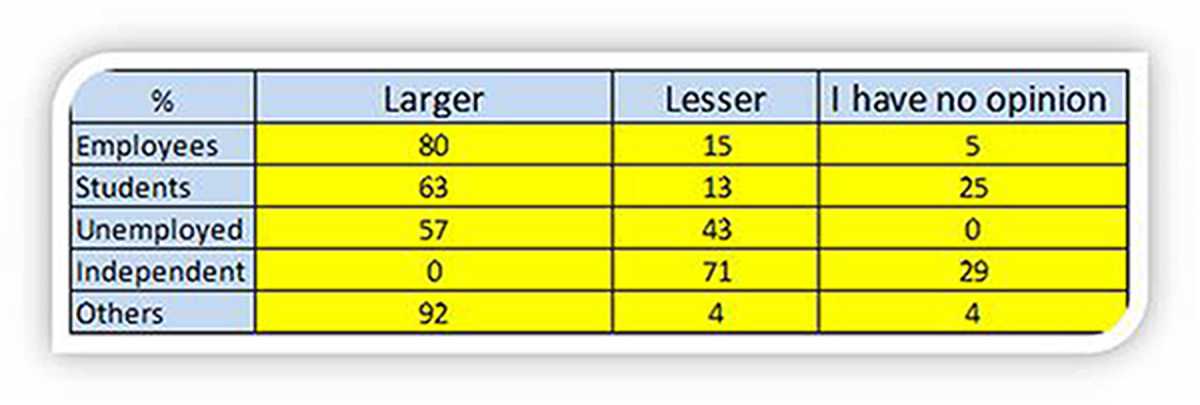
Fig. 36
Opinion:
“With the responsibilities of aviation mechanics being some of the highest in the world, why would anyone want to do the job other than for the love of it?”
Survey Question – How Familiar are you with the Initial Training Program to Become a Licensed A&P/AME?
While employees are largely aware of the initial training program, the majority of students are not.
63% of them have only partial information or none at all. We also believe that the majority of students responding to this survey have a minimum knowledge of the aeronautical sector, which means that students who did not respond to this survey may not be aware at all. The aeronautical industry should promote these jobs – and to as many people as possible!
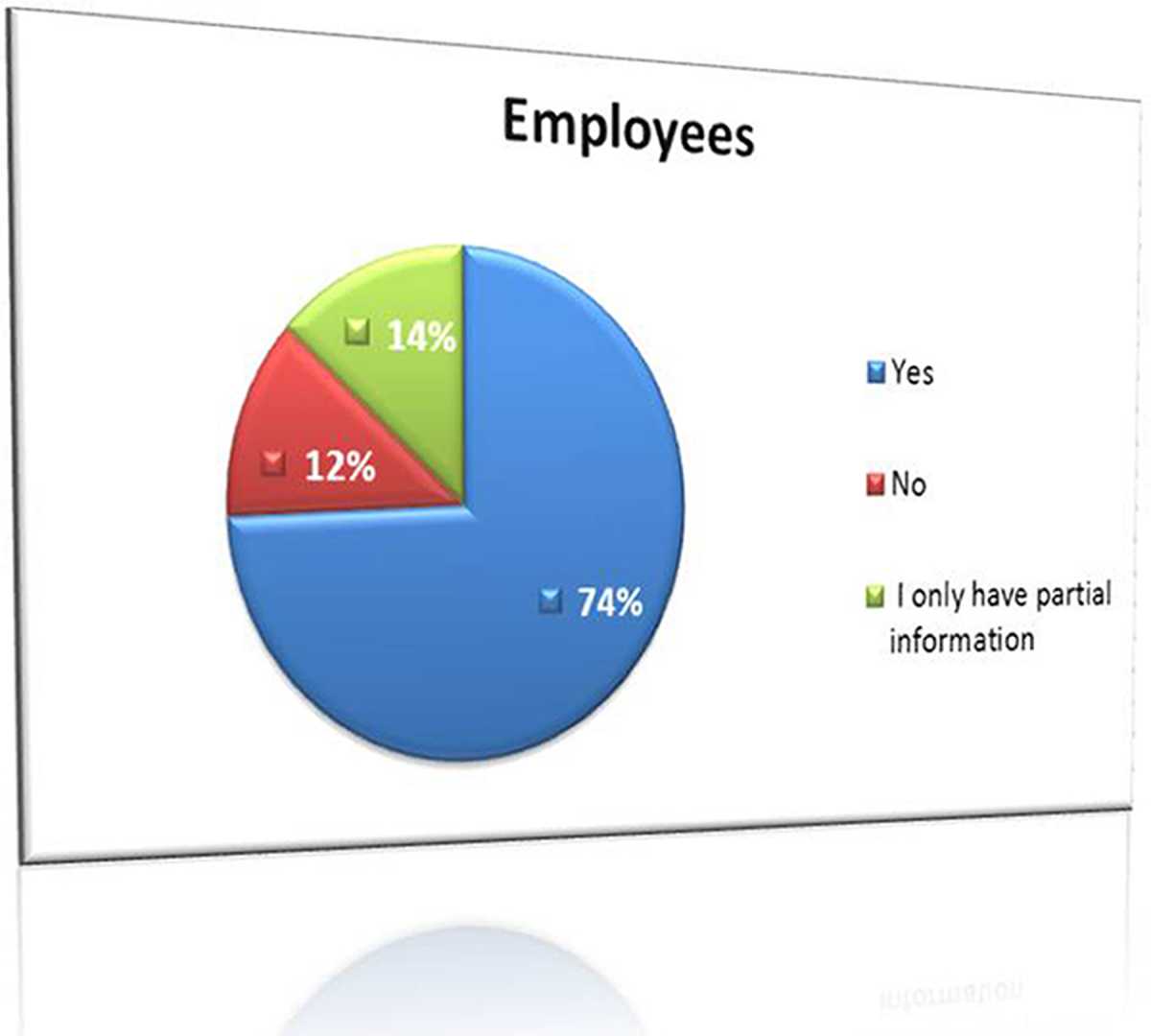

Fig. 37 Fig. 38
Survey Question – Did You Know That the Initial Training Program is Common to All Aircraft?
83% of the respondents think that rotary and fixed-wing training programs are common.
Comments (see below) added to this question show us how our global aviation world is not so global with regard to the requirements for becoming a helicopter A&P/AME.
From no requirements at all, to 4-year programs, we seem to have all sorts of possible configurations.
A&P/AME basic training programs are not all at the same level around the world. For example, safety is a major concern for industry, but is not always covered in training by a safety management system course.
Why don’t we start safety training in the initial training curriculum?
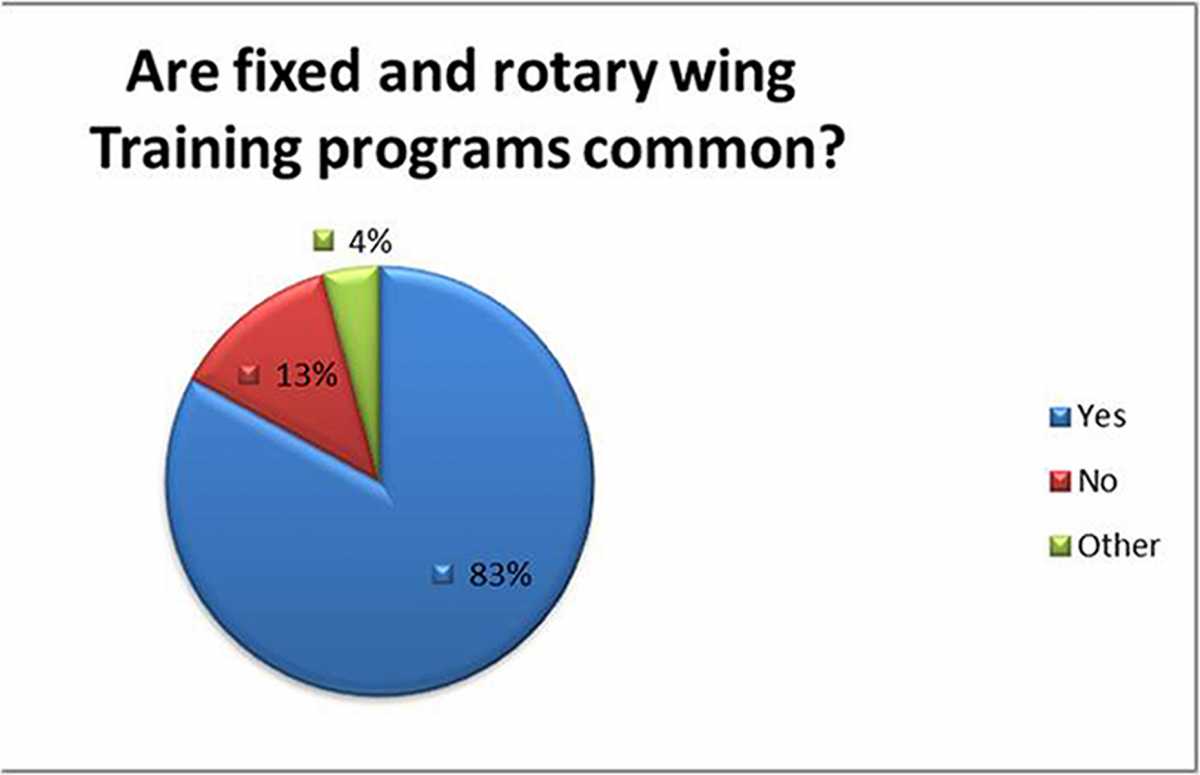
Fig. 39
Other 4% (comments):
1 certificate for fixed wing and 1 certificate for rotary wing (Mexico).
The FAA has no requirements for training A&P's to a specific aircraft (USA).
There are few helicopter courses in a whole general aircraft MTC program (Canada).
Part 147 school or military training are options (USA).
H/C mechanics are mainly former military personnel (France).
4 year program in Canada (Canada).
The study program is different (Colombia).
Australia likes to have its own rules which don't align with anyone else (Australia).
Wrong terminology in the question; no “training” is required; only documented experience or a certified school diploma and passing the FAA certificate exams (USA).
Almost no helicopter theory taught in basic training (Indonesia).
Helicopters have a different status (Finland).
Helicopter initial training is not part of the curriculum at most US AMT schools (USA).
There is no training program, it is all self study and on the job experience (New Zealand).
There is no school in general to train aircraft maintenance professionals (Singapore).
Survey Question – Do You See the Need to for More Helicopter Oriented Initial Training?
62% of all respondents think that there should be a new specific helicopter maintenance professional training program (26% + 36%).
The 38% who would like additional specific helicopter training were probably aware that such a specific training program already exists.
What is significant is that the majority (including employees) are in favor of this specific program. The reason for this could be that the entire helicopter (airframe + engine) is under the responsibility of a single A&P/AME. The other reason compared to fixed-wing aircraft could be the complexity of helicopters.
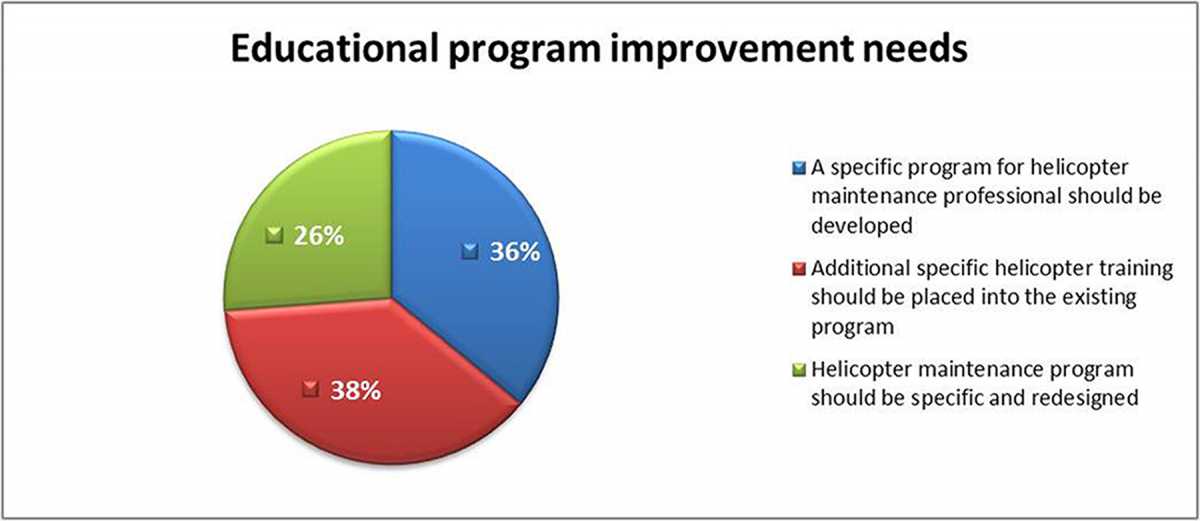
Fig. 40
Survey Question – What are Your Thoughts on Creating an International Association Specifically for the Helicopter Maintenance Professional
Of all the questions in the survey, this gave us the most heartburn. We did not want the respondents to feel obligated about this, nor do we ask this with the intent of creating another politically motivated body. Rather, the thought process for this question led us to see if there was agreement by the respondents that there was a need to improve the quality of helicopter specific training across the board. This would hopefully allow us to work with a country’s regulatory agency to implement this concept, and ultimately better facilitate an A&P/AME to more universally meet requirements and not worry about where they would be employed. It is already the case for international commercial carrier flight crew, so why not in maintenance also?
82% of all respondents were in favor of this proposal. This means that they think the creation of an international job association will allow the job and the training program to be better managed and more structured across international boundaries.
Only 39% of all categories of respondents would definitely like to be members but, if we take only the “Employees” category, this figure rises to 74%. This means that there are a lot of expectations and perhaps also a lot of frustrations.
We can conclude that through this association, A&P/AMEs expect to be heard and have their opinions taken into consideration.
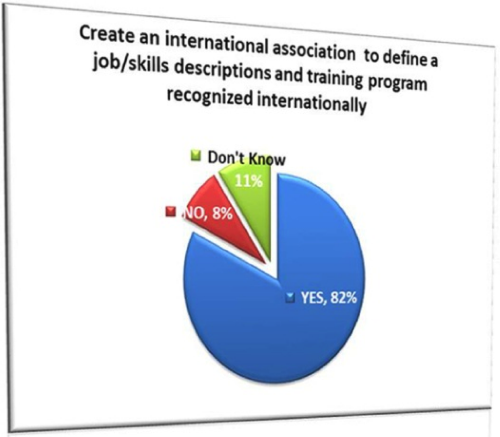

Fig. 41 Fig. 42
Overall Conclusions
This survey was performed on-line from March to June 2014 using anonymous questionnaires. It was primarily promoted by HAI, EHA and Safran Turbomeca.
There were 1602 respondents from 64 different countries, the majority of whom (68.1%) were from “the West”.
• 85% of respondents were employees:
- 61% of these employees were helicopter maintenance professionals.
- 20% were managers.
We can therefore consider that the survey is representative of helicopter maintenance professional’s opinions.
• Students represent only 2% of total respondents (32 students) and cannot therefore be considered to be representative. This data will therefore be used for information only.
• Females (4%) are less represented than males who hold the vast majority of jobs in this business sector. This means that efforts should be made to attract more female workers to this sector, as well as to adapt the work itself.
One of the conclusions of the survey is that “helicopter maintenance professionals like mechanical work and feel responsible and proud of the job they are doing”. However, they have doubts (40%) about the future of the job, and they feel worried about some upcoming changes.
In the past, a helicopter maintenance professional’s job was creative. When an issue came up, they had to use their knowledge and skills to troubleshoot the problem, and sometimes invent maintenance solutions. Today, the job has become really “assisted”. In the last 20 years, through the improvement of technical documentation and in more recent times, thanks to access to electronic/digital information which improves not only the job’s safety aspects, but also the way of doing the job itself. From skilled artisan practices, we are moving towards industrial and digital practices and “younger generations prefer white-collar jobs and may not be interested in real-life field work, as is demanded by the helicopter work force.”
These changes have an impact on current helicopter maintenance professionals who came into the job because they love things mechanical and working with a high level of responsibility in the aeronautical sector. Their area of expertise is ever changing with the introduction of new technologies, which were not part of their initial choice. They have to comply with requirements which detail a ton of administrative tasks. They experience the changes as if they are losing the heart of their job; they are suffering from the changes instead of being actively involved in them as stakeholders. Another worrying aspect is that the industry doesn’t promote their profession, while at the same time the profession of being a pilot is being promoted. With no positive information, 40% of the population has made up their own minds: “The helicopter maintenance profession is going to change or disappear!” One respondent’s opinion summarizes the general feeling: “There is nothing today that I see the aviation/helicopter community doing to encourage any of today’s youth to become involved, either in terms of salary or of interest.”. Drone technology introduction is also scaring them away.
How is industry managing the changes? How are operators covering needs today?
As it is facing the challenge of improving helicopter safety (the accident ratio of fixed-wing aircraft is lower than that of rotary-wing aircraft), the industry is innovating technology and associated services to make fleet operations safer and more reliable.
The consequences are that tasks are operationally more and more “simple” to apply by following step-by-step technical documentation. This corresponds to basic manual mechanical skills, with no problem-solving skills involved. At the same time, the complexity involved in solving problems is greater as e-technology and software are becoming more and more prevalent.
Helicopter maintenance professionals are therefore developing new skills using computers and software, but are moving away from using applied thought to solve problems. Today this is reality. Helicopter maintenance professionals who in the past were able to choose maintenance tasksbased only on listening to the sound the helicopter was making will not exist in the future. These same individuals will work with digital information and will intervene rarely to directly mechanically repair the helicopter. They will instead prefer to delegate this task to a basic mechanic, check his work at the end, and then check or implement all the digital updates required to return the helicopter to service.
Some operators have already started to manage maintenance resources based on this principle:
- A team of basic mechanics performing the basic tasks
- An expert mechanic (the helicopter maintenance professional) who has a high level of technical and digital skills.
This organization can be efficient (saving time and costs) at a maintenance base, but is not available for in-the-field operations where there is a need a full helicopter maintenance professional capable of directly managing both activities, and releasing the helicopter.
Current training programs do not differentiate between these two categories of training needs, which we can summarize as:
- having a standard set of skills for aeronautical procedures (basic mechanic)
- having a standard set of skills plus mechanical training (including electronic and digital training), and capable of returning a helicopter to service (expert helicopter maintenance professional).
If we were to differentiate between these two categories, this could have two consequences:
- First: the shortage of helicopter mechanics could be partially solved as the job will attract people with lower levels of study, who are mainly attracted by the job of mechanic (17%) and by working in the aviation industry (23%). There will also be fewer students wanting to continue their studies, and the ones who will want to do so will achieve more adequate mechanical experience and can pursue their desired career advancement (important for 25% of students).
- Second: if helicopter mechanics have a higher level of expertise, greater recognition and safety improvements can be expected. Basic mechanics who would like to become full helicopter maintenance professionals could be tutored by the experienced experts.
Current helicopter maintenance professionals, together with the other respondents in the survey, are in favor of creating an international association (82%).
This association could help to:
- Define necessary skills to perform the two levels of the job (if validated).
- Review the initial training program, taking care to integrate new technologies.
- Take action with industry to promote the job.
- Interface with the authorities and industry in relation to the evolution of the job in order to manage and anticipate the global changes which this job is facing.
The helicopter industry needs helicopter maintenance professionals of both genders that are able to familiarize themselves with new technologies in order to make helicopters safer and more popular!
In closing, here are six thoughts I propose to be the core of the 2015 symposium in Orlando, FL, at Heli-Expo 2015:
1- What can we do as an industry to better promote and entice those that might be considering becoming a helicopter maintenance professional?
2- What can we do as an industry to promote the future of the helicopter maintenance professional as a career?
4- What can we do to create more apprentice programs that are a win for all involved?
5- What can we do as an industry to create more uniform global training/qualifications so that these qualifications are more easily accepted by all regulatory agencies?
6- What benefits do you see if any, to creating an international association specifically for the helicopter maintenance professional?
We hope that if you did not realize it before, that you do now, that there is a real shortage of helicopter maintenance professionals on a global scale. We believe that to start to fix a problem, we must initially accurately determine what the problem is. We also believe that we, the helicopter industry worldwide, is in the best position to help ourselves. If you can think of any other issues covered in the survey that we did not mention as a topic for the 2015 symposium, please send me an email with your suggestions.
